Agriculture & Environment
Mak-CAES Holds 2nd International GORILLA Conference
Published
3 years agoon
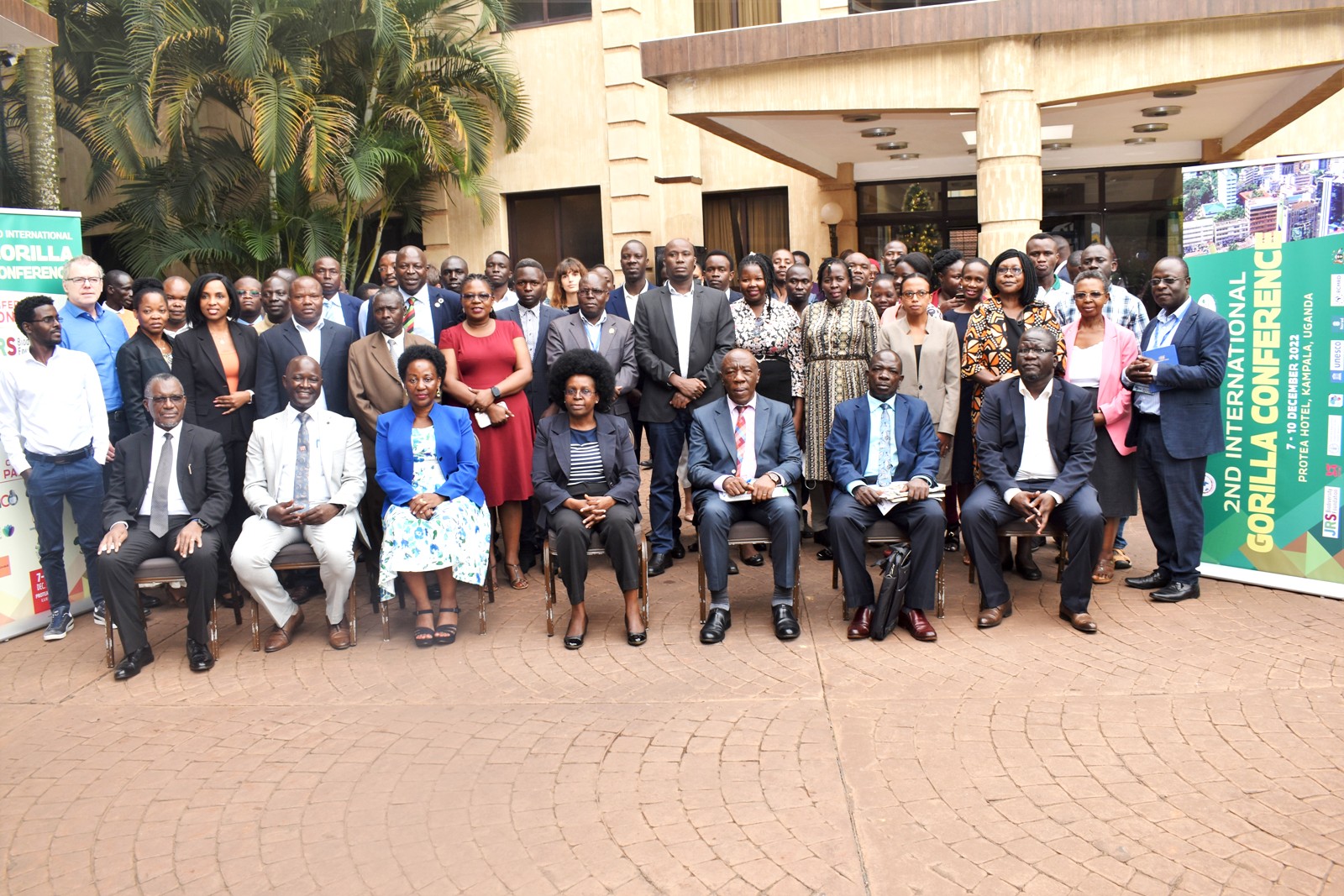
The International Conference on Geographical Science for Resilient Communities, Ecosystems and Livelihoods Under Global Environmental Change (GORILLA) seeks to contribute to the realization of the Global Development Agenda 2030 and the AU Agenda 2063.
Overview
The resilience of ecological and social systems has gained heightened attention globally and are at the center of the United Nations Global Development Agenda 2030 manifesting in; (a) the 17 Sustainable Development Goals and 169 targets, (b) the Sendai Framework for Disaster Risk Reduction, 2015-2030 with its four priorities and 7 targets, (c) the Paris Agreement geared at keeping temperature within the 1.5 º-2 ºC threshold.
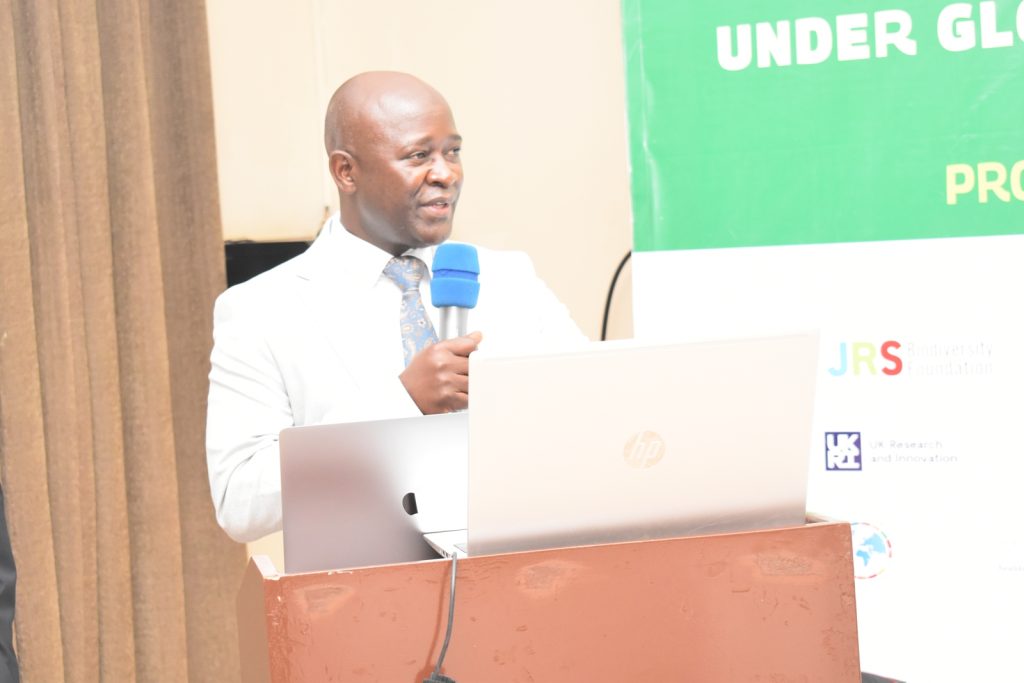
Substantial efforts by the global community have been variously invested in resilience building and sustainable systems in light of multiple exposures and threats. But huge gaps and challenges still remain that compromise realizing the desired goals. The effects of the global financial crisis, existing geo-political tensions and the emergence of COVID19 altered the resilience trajectory with new dimensions in health, natural resources and poverty. Moreover, recent events exemplified by record temperatures registered in several countries but most notably in the UK, the increasing frequency and magnitude of hydrometeorological hazards as witnessed in Uganda, the increasing loss of biodiversity (>1,000,000 species lost) as recently reported by Intergovernmental Science-Policy Platform on Biodiversity and Ecosystem Services (IPBES) have heightened the need for urgent interventions that protect vulnerable societies. A consequence of these processes coupled with other factors including but not limited to land use and land cover conversions, rapid urbanization, is that mixed progress has been registered in realizing the sustainability targets for 2030 (https://sdg-tracker.org) with Sub Saharan Africa (SSA) countries posting dismal progress. Uganda currently ranks 136/163 in SDG performance with an SDG Index Score of 53.5 (https://dashboards.sdgindex.org/profiles/uganda). Contextual knowledge creation and utility coupled with harnessing evolving and emerging technology are critical ingredients in building sustainable and resilience pathways and systems which the Global Sustainability Agenda aspired to achieve.
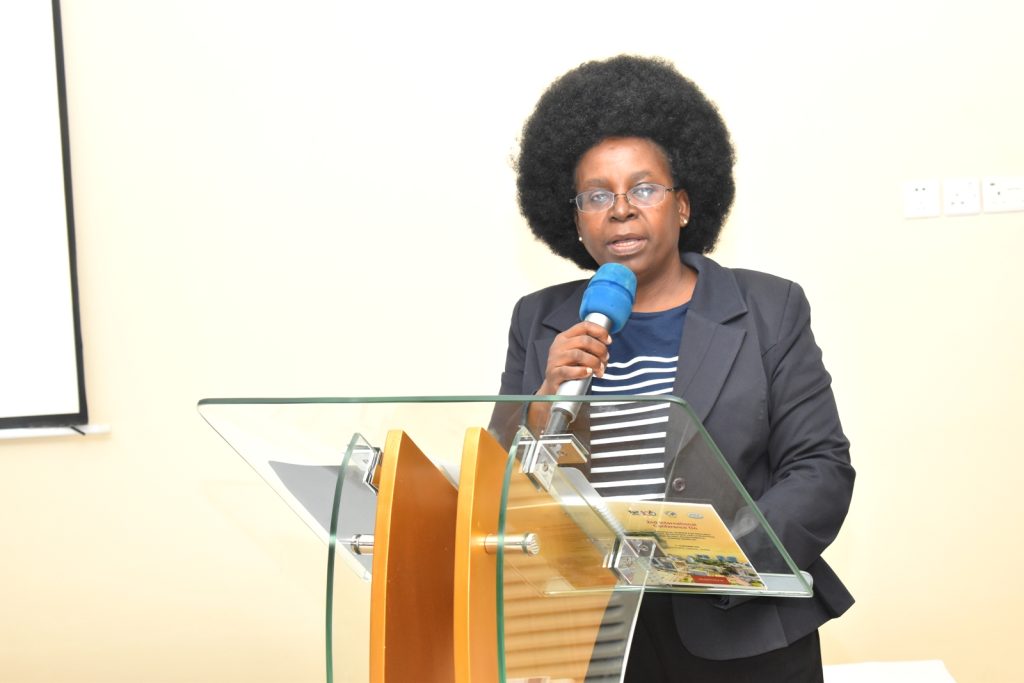
The 2nd GORILLA Conference
The 2ndGORILLA Conference organized by the College of Agricultural and Environmental Sciences (CAES), Makerere University, and the National Environment Management Authority (NEMA) sought to make a contribution to the realization of the Global Development Agenda 2030 and the AU Agenda 2063 by addressing two fundamental questions; (1) “how science, research and the academia can contribute to the expedited achievement of global targets and resolve societal challenges? (2) how local, regional and international partnerships as well as interactions between science, policy and practice can enhance the delivery and achievement of the global development targets?
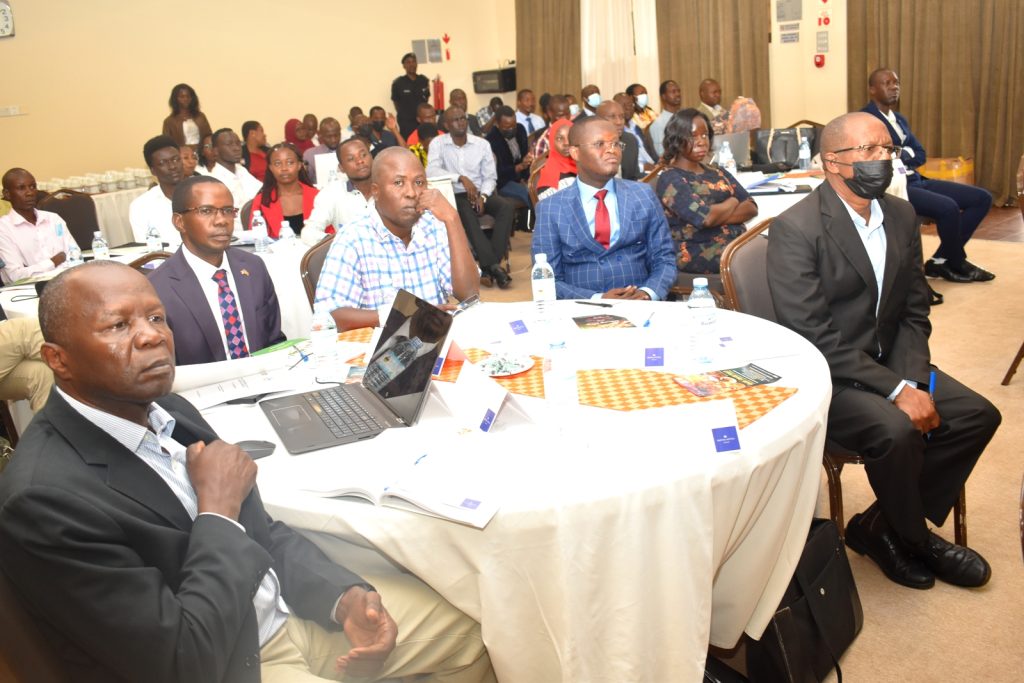
The conference held on 8th-9th December 2022 at Protea Hotel in Kampala was coordinated by Prof. Yazidhi Bamutaze, Associate Professor in the Department of Geography, Geoinformatics and Climatic Sciences, also Deputy Principal, CAES (Chair), and Dr Jerome S. Lugumira, Natural Resources Manager (Soil and Land Use), NEMA (Co-Chair). Sponsored by UNESCO, Biodiversity Foundation, the Food and Agriculture Organization of the United Nations, NORAD, UK Research and Innovation, BRAC Uganda, ARUA Water Centre of Excellence (CoE), and the Regional Centre for Mapping Resources for Development (RCMRD), the conference was attended by eminent scholars, researchers, representatives from the government and civil society organizations, and policy makers.It was presided over by the Minister of Science, Technology and Innovation, Hon. Dr. Monica Musenero Masanza, and graced by the Vice Chancellor of Makerere University represented by the Deputy Vice Chancellor in charge of Finance and Administration, Prof. Henry Alinaitwe; the representative of the Executive Director, NEMA, Dr Daniel Babikwa; the Principal of CAES, Prof. Gorettie Nabanoga; and the Dean, School of Forestry, Environmental and Geographical Sciences, Prof. Fred Babweteera.
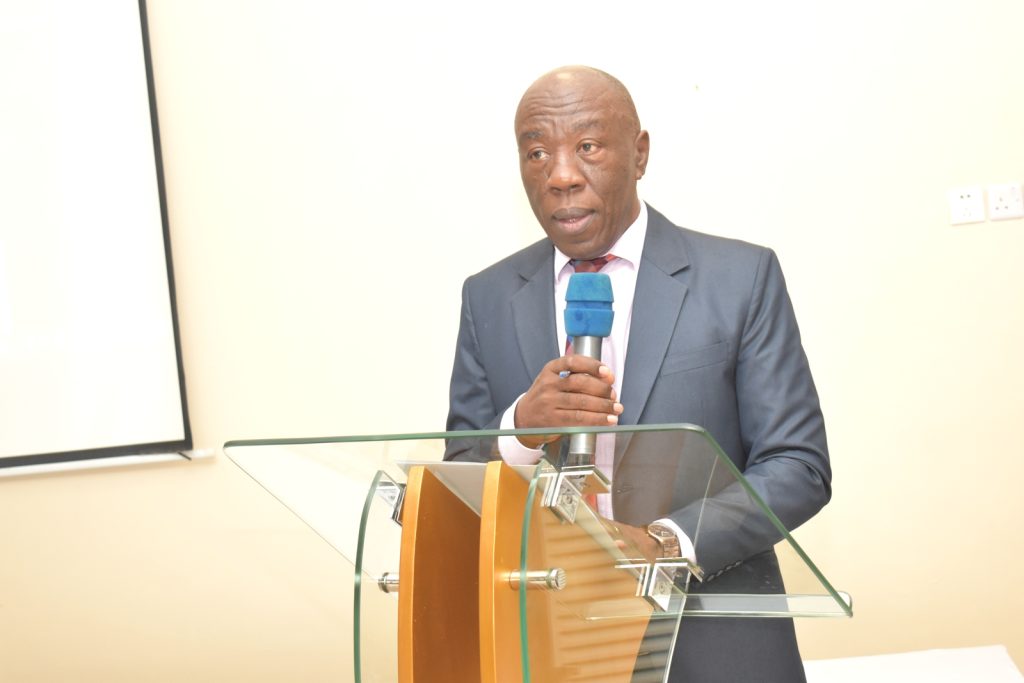
The conference featured a number of keynote speeches and presentations in relation to nature-based systems in mitigating Hydro-Meteorological hazards and disasters; climate smart agriculture for sustainable resilience; land degradation; migration and displacement; water management; biogeography, biodiversity and ecosystem conservation; and the future of smart cities and urban systems in Sub-Saharan Africa.
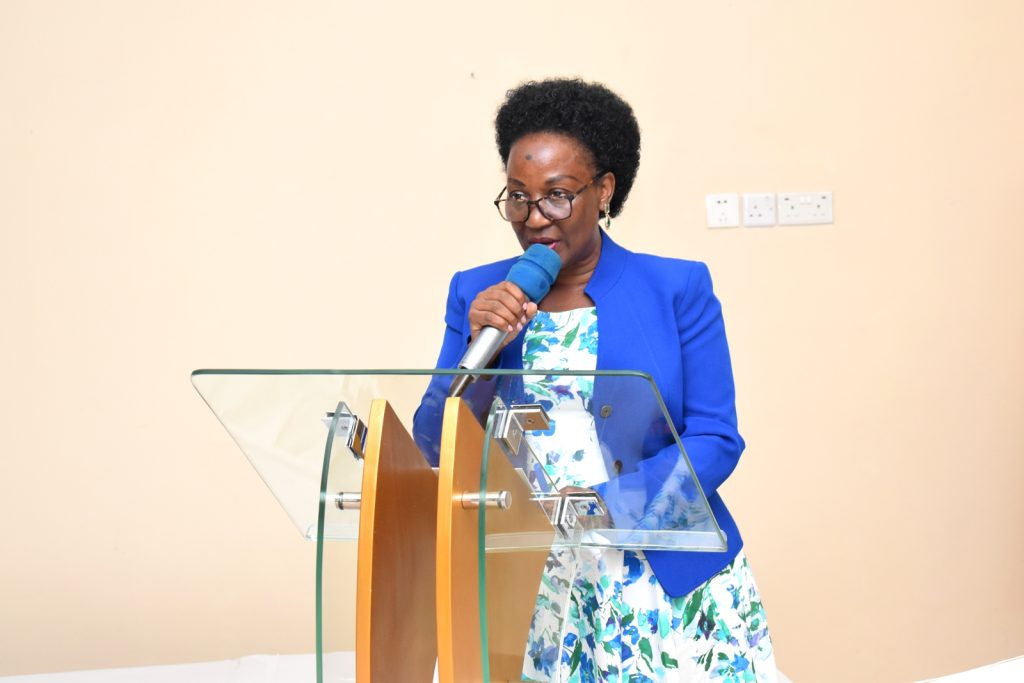
Keynote addresses
Prof. Tonny J. Oyana, Principal College of Computing and Information Sciences (CoCIS), Makerere University, also GIS and Spatial Analysis expert shared insights on optimizing biodiversity data science for societal benefits in developing countries. Dr Joy Obando, an Associate Professor in the Department of Geography at Kenyatta University delivered a presentation on building climate resilient communities and ecosystems in Sub Saharan Africa, whereas Dr Justine Namaalwa, an Associate Professor and Head, Department of Environmental Management at Makerere University addressed participants on the significance of optimizing green assets as a pathway to achieving the global development agenda. In her remarks, Prof. Namaalwa emphasized the need to preserve nature.
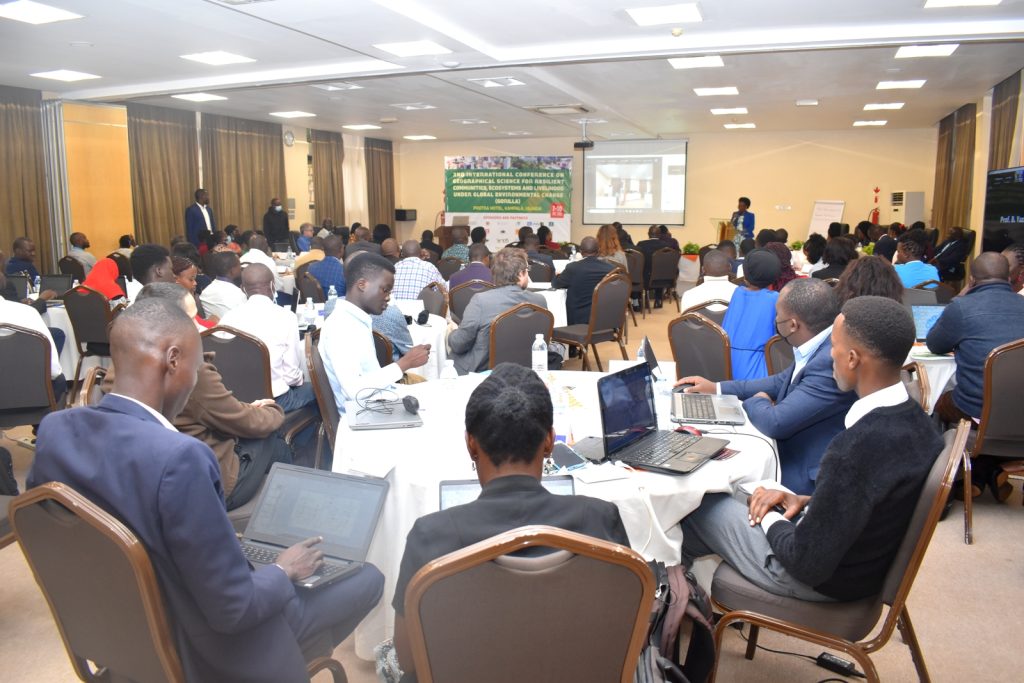
“Compromise nature then you fall on the targets of the Global Development Agenda.There is need to take stock of our natural assets and reflect on their value. If we are to continue with the mantra of no one should be left behind, there should be national ownership over the development process. We also need to adopt informal and formal knowledge systems,and embrace citizen science as well as global partnerships,” she explained.
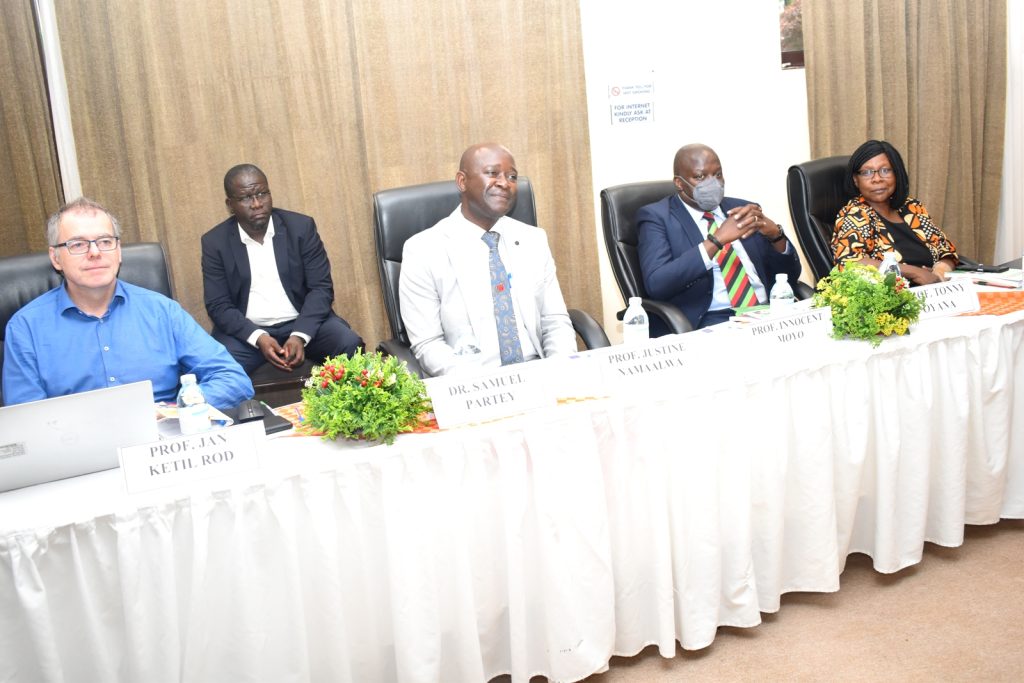
Prof. Jan Ketil from the Department of Geography, Norwegian University of Science and Technology (NTNU) briefed participants on the geography of disaster risk and participatory risk management, sharing insights on harnessing sensors and geospatial technology for disaster risk management. Dr Samuel Partey from UNESCO Regional Office in Nairobi, Kenya highlighted the significance of biosphere reserves in building resilient ecosystems and societies. Dr Partey is the youth focal person for science, and the evaluation focal point for UNESCO’S Oversight Unit at the Office in Nairobi.
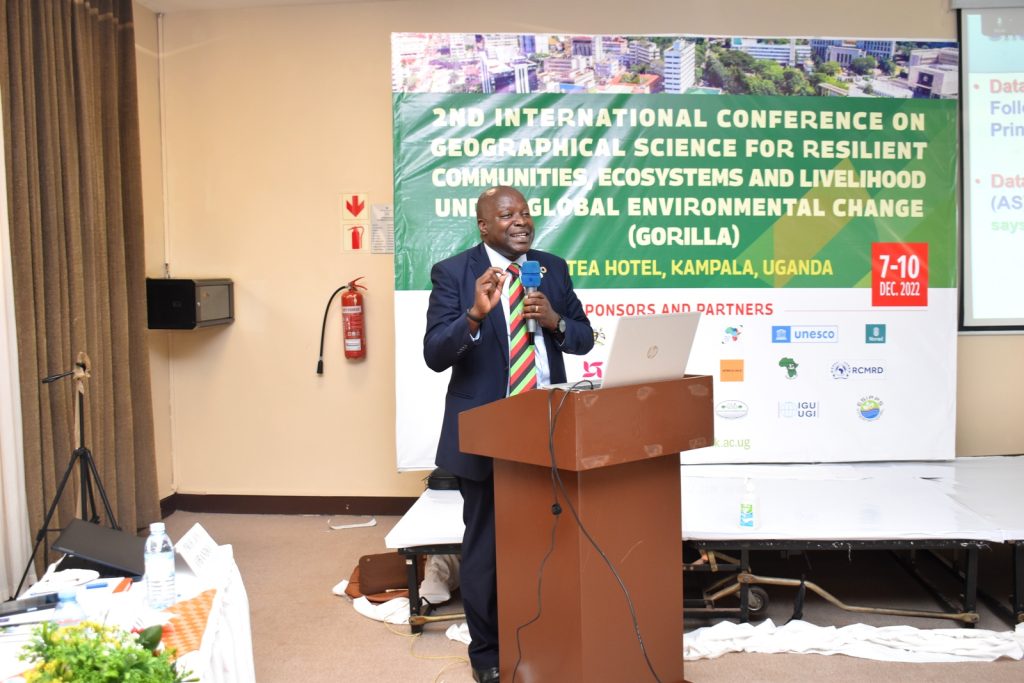
In his presentation, Prof. Heiko Baltzer from the University of Leicester, UK called for improved satellite earth observation as a measure to strengthen forest governance and livelihood resilience in Africa.
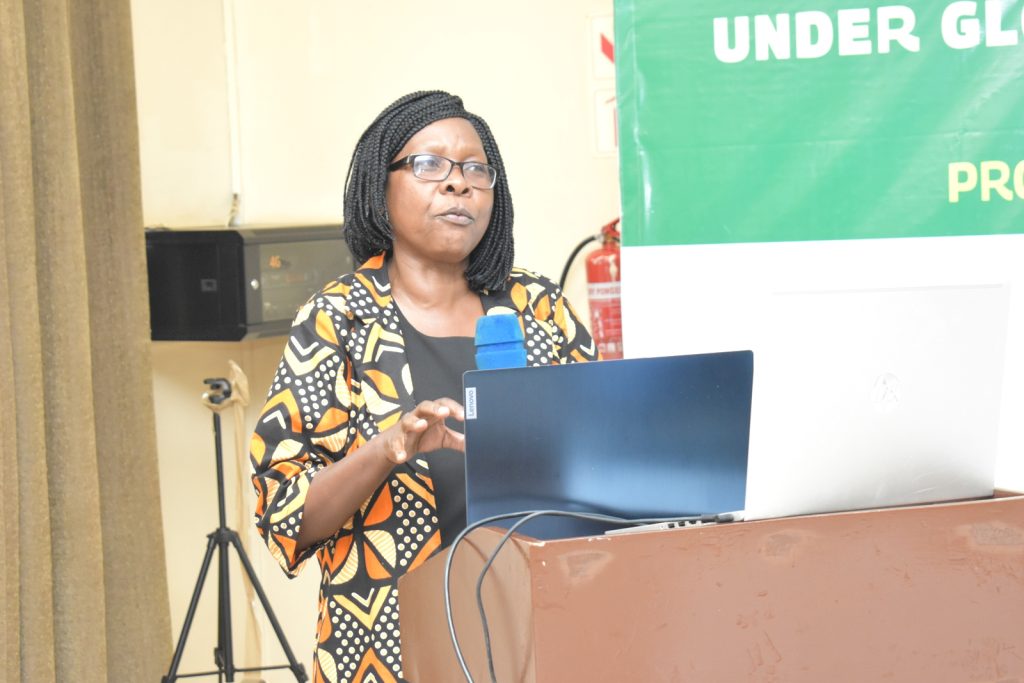
Panel discussion
The conference also featured a panel discussion on a number of topical issues in regard to Sustainable Development Goals (SDG); research and policy formulation; building resilient communities;prioritization of resilience in government planning and budgeting;factors undermining innovativeness; and the use of geoinformation in the quest to achieve sustainable development. Discussants included Hon. Dr. Magolo John Faith, Member of Parliament Bungokho County North and member of the Parliamentary Committee on Climate Change; Mr. Othieno Odoi, Senior Planner, Trade and Tourism at the National Planning Authority; Ms. Celia Nalwadda, Senior Research Officer, Uganda National Academy of Sciences (UNAS); Ms. Hellen Aketch, Project Manager BRAC Uganda; and Dr Anastasia Wahome, Lead, Science/Data at the Regional Centre for Mapping Resources for Development, Nairobi.
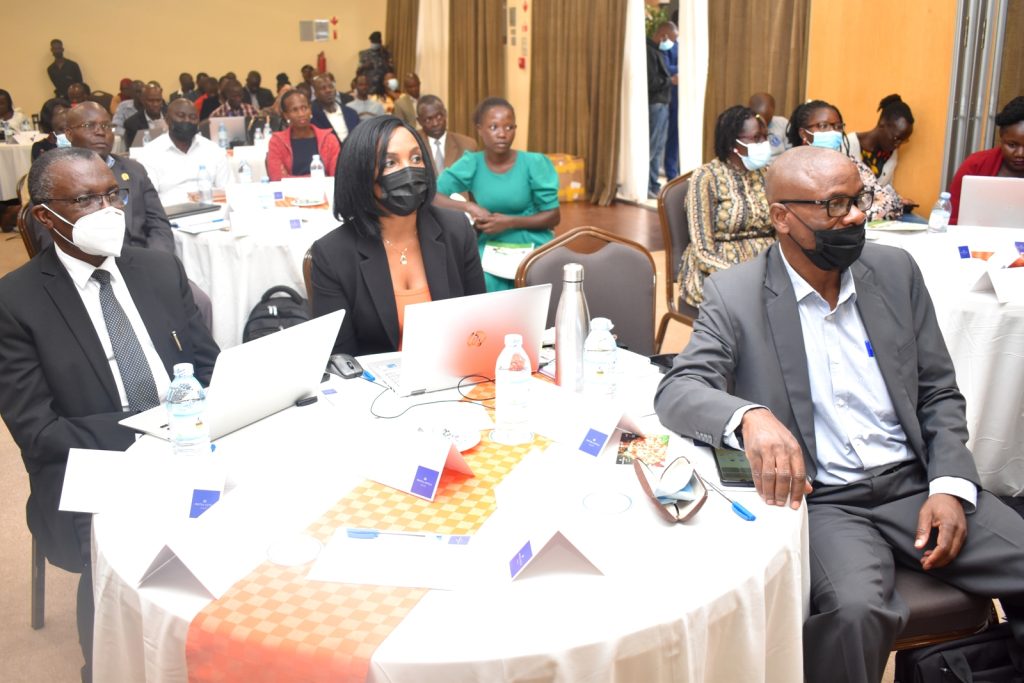
In his submission,Hon. Magolo informed participants that Parliament had passed the National Environment Act, 2019and the National Climate Change Act, 2021 to fast track the implementation of SDG 13 (Climate Action). Brac Project Manager, Ms. Hellen Aketch called for strengthened partnerships between universities and industry for increased uptake of research and sustainability of innovations. Ms. Anastasia Wahome emphasized the importance of geoinformation in disaster planning and management, whereas Dr Othieno Odoi from National Planning Authority noted that checks had been put in place to ensure issues regarding resilience, climate change, gender, and environment are catered for before government plans and budgets are passed. The discussion was moderated by Dr Patrick Byakagaba, a Lecturer in the Department of Environmental Management, CAES, Makerere University.
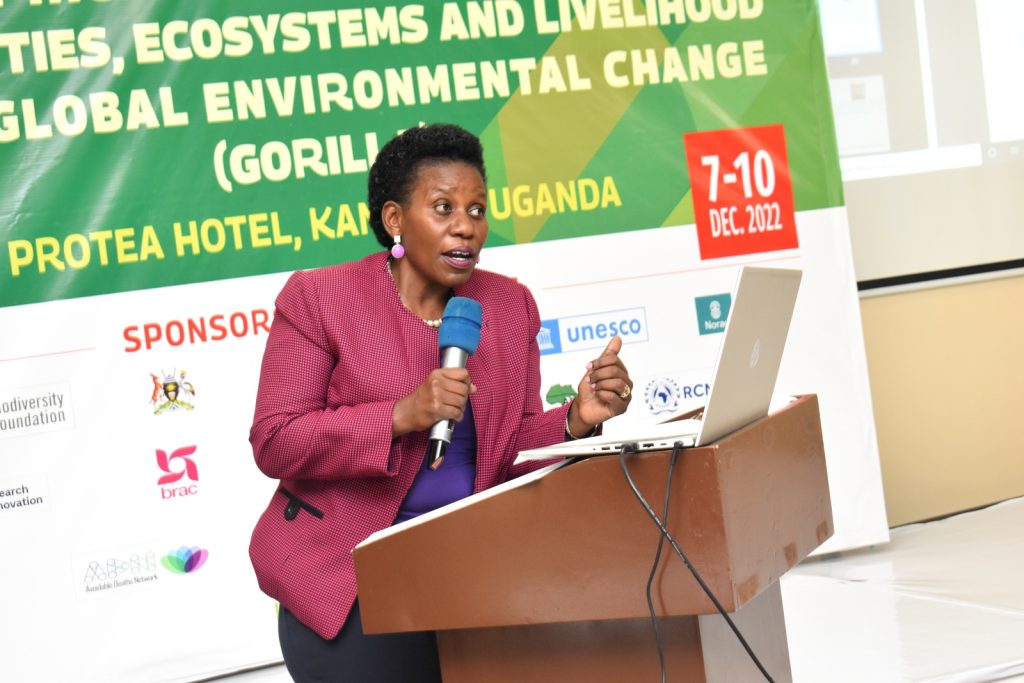
Remarks by the Minister – Hon. Dr. Monica Musenero Masanza
In her remarks, the Minister of Science, Technology and Innovation, Hon. Dr. Monica Musenero Masanza urged Africans to embrace technology development as a measure to foster socio-economic transformation on the Continent. “Science contributes 50% to our national development. However, we haven’t done much to embrace technology development. We are blindly technology consumers, mainly relying on imports which makes it hard for us to achieve sustainable development. Africans should stop delegating thinking and work towards developing their own technology. We need to stop thinking of ourselves as consumers of technology and work on educating a thinking generation that can develop our own technology. Universities have done well but I encourage them to change their mindset and focus more on developing technology. We cannot afford as a country, in this new dispensation of green energy economies, post COVID19, and the future as envisioned in Vision 2040, to remain dependent on imported technology. We need to be more innovative,” she advised.
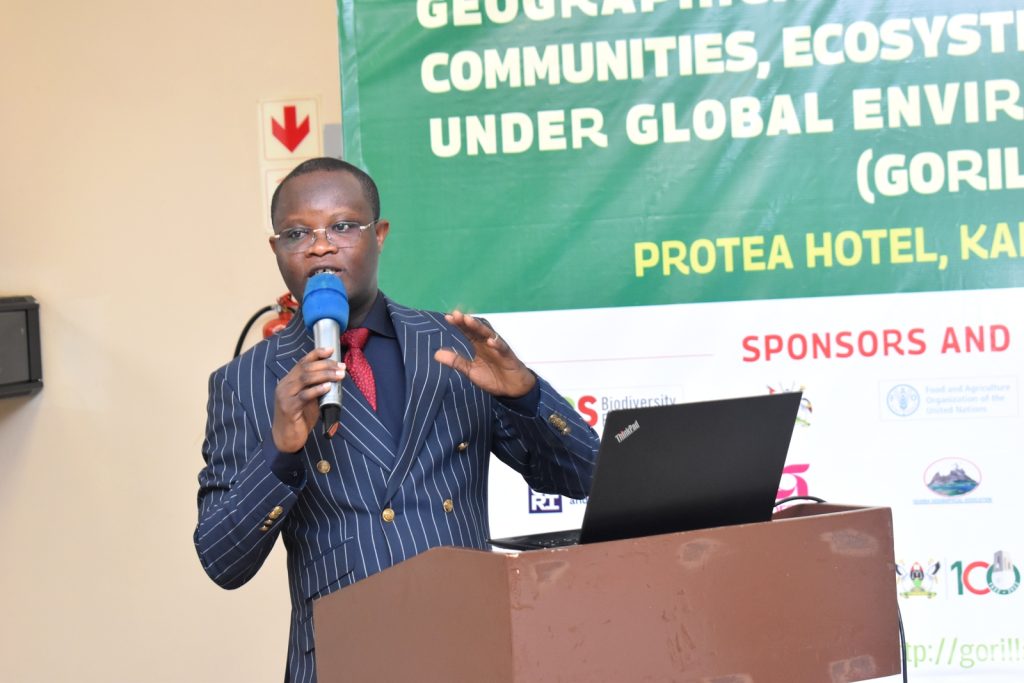
In line with the conference, the Minister emphasized the importance of geospatial tools in conserving ecosystems. Highlighting the significance of geography in developing the mobility industry, the Minister called for development of newer construction technologies. “The continued use of soil and stones in construction will lead to deformation of the ecology,” she noted.
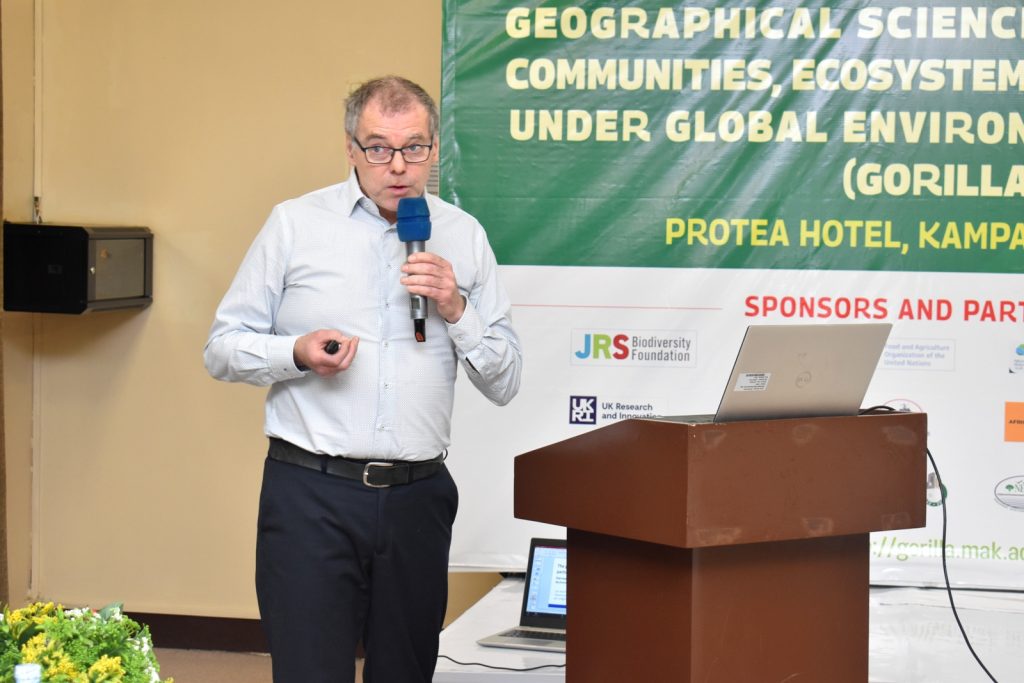
Addressing participants, the Deputy Vice Chancellor in charge of Finance and Administration, Prof. Henry Alinaitwe decried the continued depletion of ecosystems.“Climate change resulting from the continued destruction of ecosystems has led to erratic weather conditions with severe consequences for humanity. Because of erratic weather conditions, we cannot have good produces in terms of food and we are likely to have long spells of hunger. Achieving resilient and sustainable livelihoods requires continued research and invention of technologies to address challenges of climate change. It is gratifying that this conference seeks to address many of these challenges,” he noted.
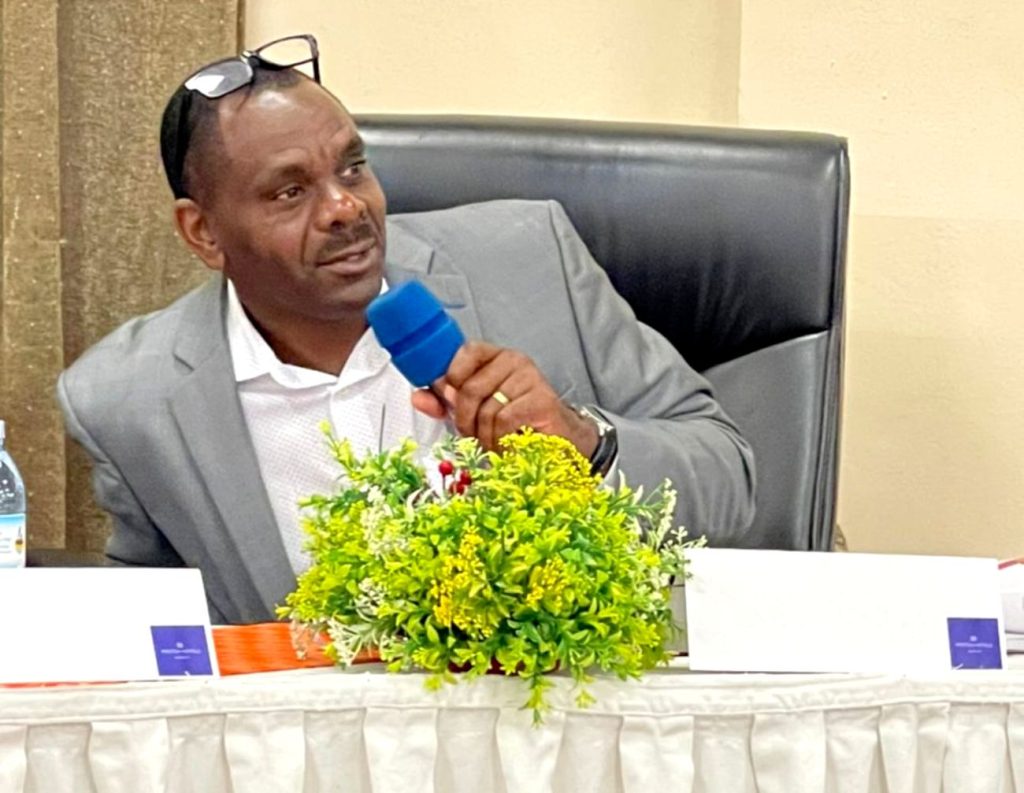
The Principal, College of Agricultural and Environmental Sciences (CAES), Prof. Gorettie Nabanoga reiterated the need to build resilient communities and ecosystems for improved livelihoods. “Through research, we are looking for ways of improving community resilience in order to have sustainable ecosystems for improved livelihoods. This conference serves as a platform for us to share experiences in the different ecosystem research areas and best practices in trying to curb climate change. Climate change is real and a lot has to be done. We need to re-adjust the way we do things. There are practices we have come up with in relation to our day to day activities like water conservation and soil management that will help us combat some of the hazards resulting from climate change, and at this conference, we are focusing on climate smart agriculture. As a country, we purpose to move from substance climate smart agriculture to an income-oriented climate smart agriculture,” she said.The Principal also noted that the College was committing more efforts towards achieving the sustainable development goals. “As a country, we committed to having an input to achieving the SDGs.At this conference, we are emphasizing our intention and being very proactive in ensuring that we tackle the SDGs, putting it in mind that we have only 8 years to hit our target.As researchers, we are purposing to make contribution to the realization of all SDGs, with special focus on Goal 1 that seeks to alleviate poverty.”
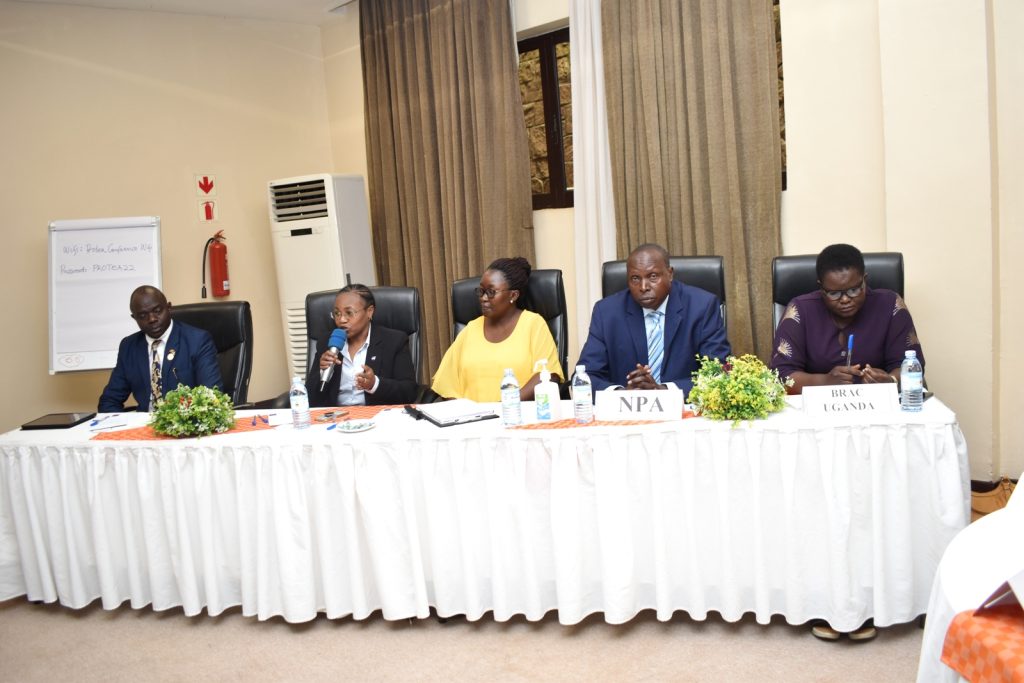
Addressing participants, the Chair of the Organizing Committee, Prof. Yazidhi Bamutaze said the conference presented a great opportunity for conceptual, empirical and theoretical discourse on pressing sustainability and resilience issues. “The GORILLA conference serves as a platform for bridging the science-policy-practice gaps and deriving actionable and policy-oriented measures that can potentially transform societies,” he noted. He said a special publication had been planned with the African Geographical Review (AGR) journal in commemoration of Mak@100. He expressed gratitude to the sponsors of the conference and the local organizing committee.
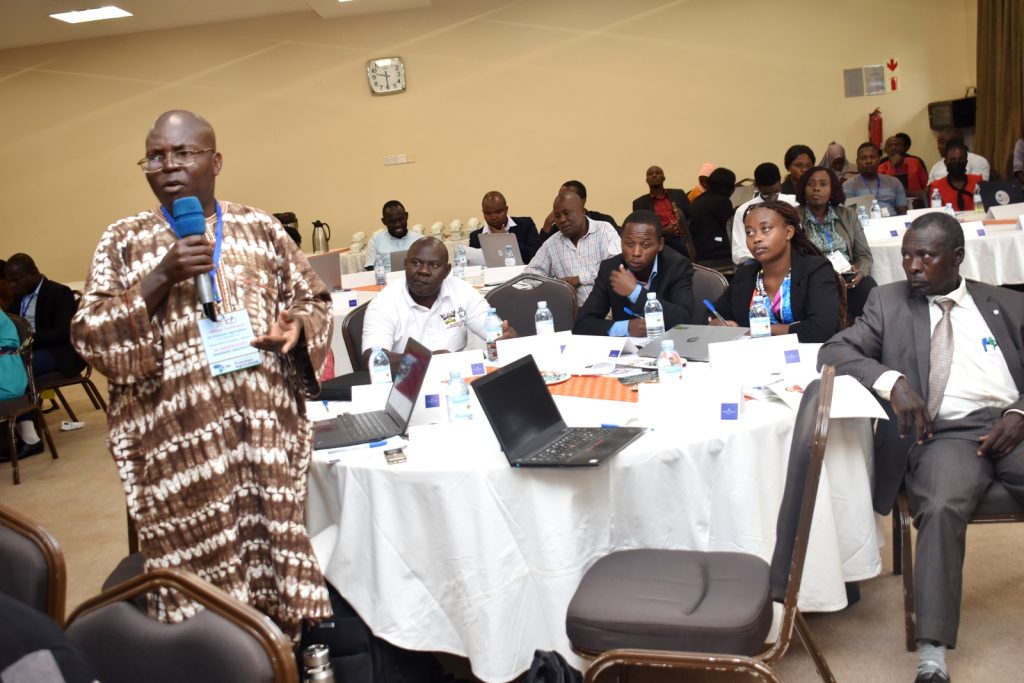
Delivering his remarks, the Head, Department of Geography, Geoinformatics and Climatic Sciences, Makerere University, Prof. Mugagga Frank appreciated the sponsors of the conference and the participants for committing time and resources to address issues crucial for sustainable management of ecosystems and livelihoods. He also appreciated the International Geographical Union (IGU) for its support towards the Uganda Geographical Association. “We profoundly thank IGU, through Prof. Michael Meadows for supporting us when we petitioned against the merger of the Bachelor of Geographical Sciences with Meteorology and Environmental Sciences at Makerere University. The petition was successful and the programmes were left as distinct disciplines,” he noted. Prof. Mugagga is the President of the Uganda Geographical Association, an organization that works to develop professional geographers with knowledge and skills to effectively address global environmental challenges. The Association conducts research on pertinent issues affecting humanity such as climate change adaptation and mitigation, landslides, floods, soil erosion and sedimentation, land degradation, regional development, ecosystems management, urbanization, population growth and development, water scarcity and food security. The Association also holds periodic retooling courses for geography teachers and other civil servants. Prof. Mugagga congratulated Prof. Yazidhi Bamutaze upon being elected IGU Vice President for Africa.
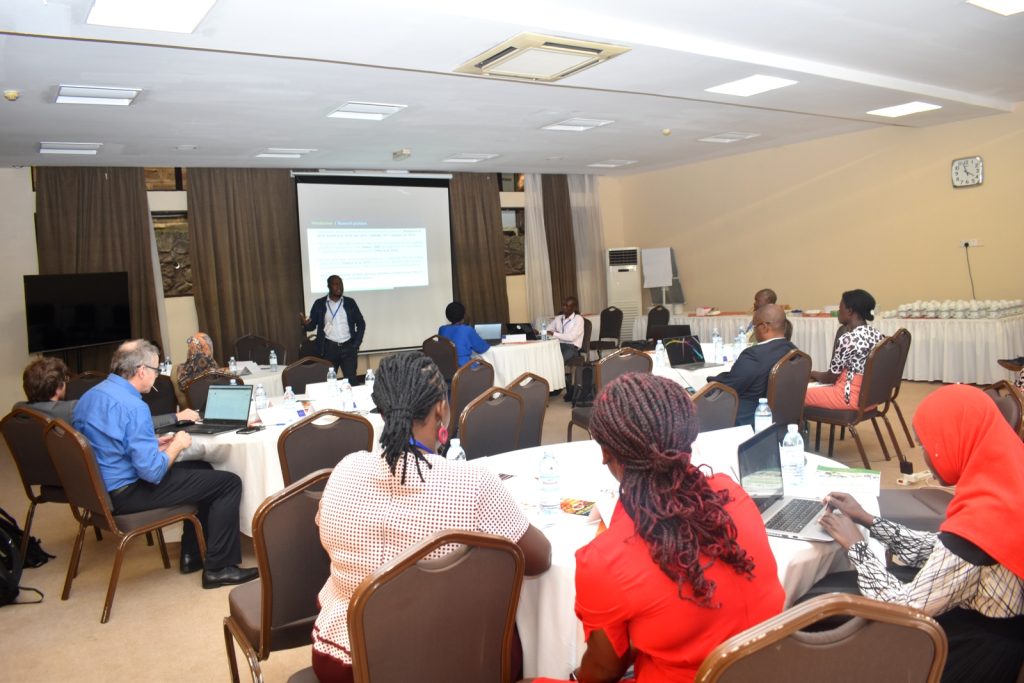
In his closing remarks, Dr Jerome S. Lugumira, Natural Resources Manager (Soil and Land Use), NEMA said government was committed to the use of science in fostering national development. He reiterated the power of networking in trying to address global development challenges and urged researchers to actively engage policy makers in their projects.
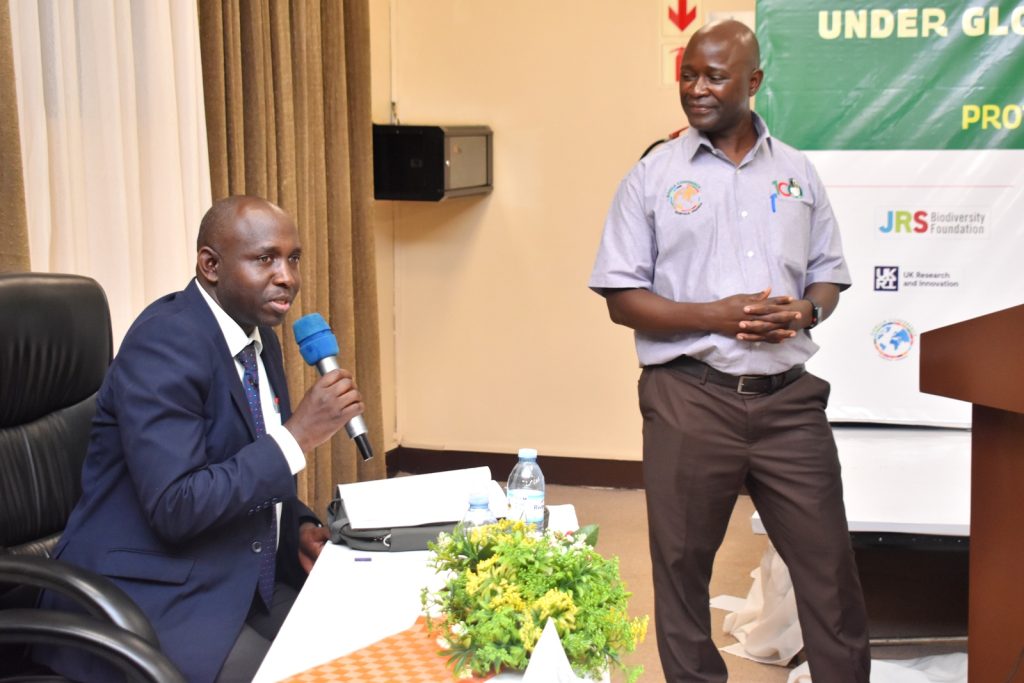
Pre-conference hackathon and training
Satellite Earth Observation (EO) provides a wide range of environmental data information which is key to the effective planning and monitoring of the environment. In this regard, the College held a three-day pre-conference hackathon on geospatial-based cloud computing for biodiversity and ecosystem resilience with the aim of engaging early career scientists, researchers and practitioners with diverse backgrounds to foster collaboration in the use of geospatial technology and earth observation to address sustainable development issues, especially on biodiversity and ecosystem resilience.
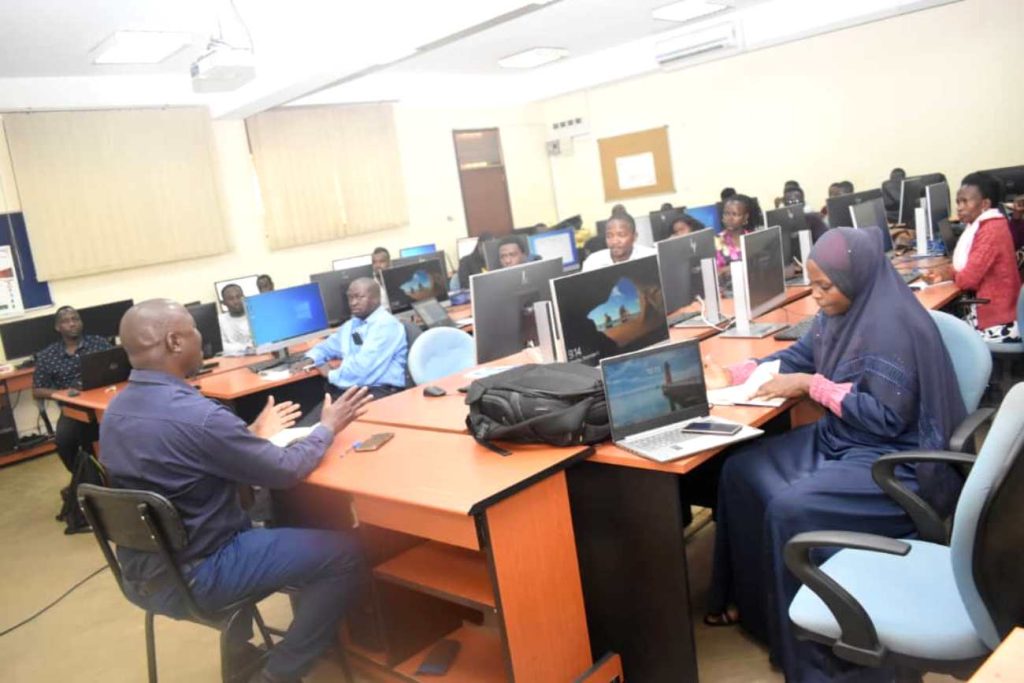
The College also held a three-day training on optimizing emerging geospatial technologies in evaluating climate change impacts on vegetation. Vegetation resources in tropical Africa are under increasing threat both from climate change and a spate of anthropogenic activities. Yet a substantial proportion of livelihoods in Africa is linked to environment and natural resources. Thus, the need for improved monitoring to ensure integrity and resilience of vegetation resources and ecosystems is apparent in line with the goals and tenets of the Global Development Agenda 2030. Geospatial technologies occupy a vintage position in monitoring, analysis and overall resilience building. The training aimed to, 1) equip participants with emerging tools and technologies that can be harnessed in analyzing climate change impacts on vegetation and ecosystems, 2) build an ecosystem of champions to propel the utility of geospatial technology, 3) to improve the ecosystem and vegetation resilience to climate change.
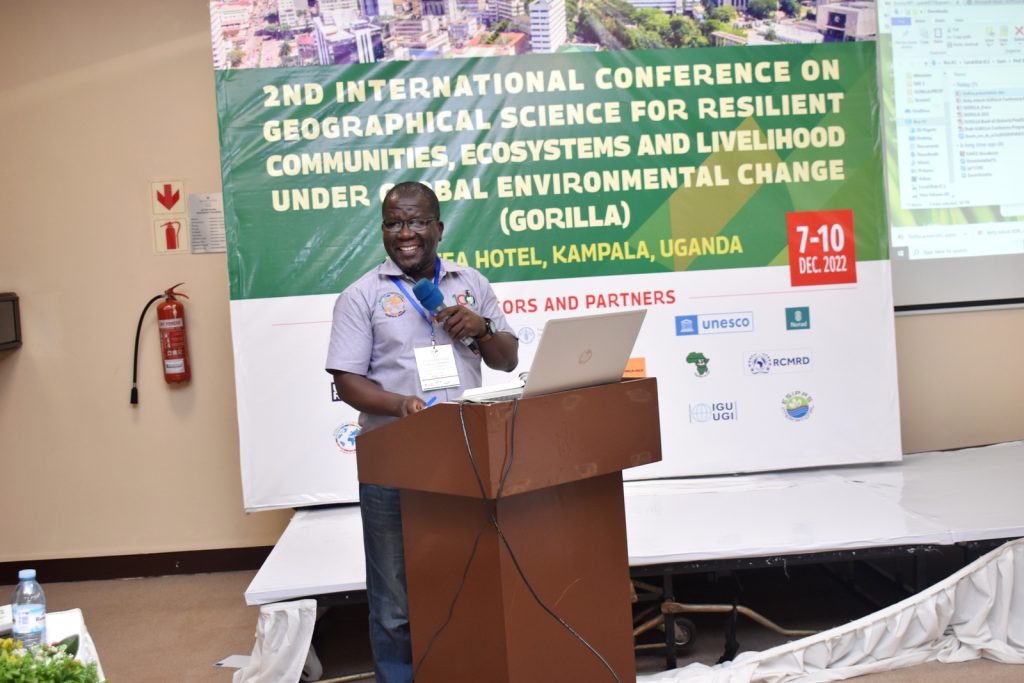
The trainings were coordinated by Dr Daniel Waiswa from the School of Forestry, Environmental and Geographical Sciences, Makerere University; and conducted by Dr Allan Mazimwe from the Department of Geomatics and Land Management, College of Engineering, Design, Art and Technology (CEDAT), Makerere University; Dr Bernard Barasa from the Department of Geography, Kyambogo University; and Mr. Thomas Enuru from the School of Food Technology, Nutrition and Bio-Engineering, CAES.
Details on the 1st GORILLA Conference at: https://news.mak.ac.ug/2020/12/the-1st-international-gorilla-conference-opens-at-mak/
Please see below for conference documents.
GORILLA Keynote Presentation_Dr. Samuel Tetteh Partey, UNESCO: https://doc-0s-58-docs.googleusercontent.com/docs/securesc/b07ld2tllpi647jp9b09m7chohgqnct1/tv2v4ikl813e11s5vhhkmrlatg2j282v/1670919975000/13459373403972771569/11467171637526004956/14Vc2iWRxryo_MNXMxq0I_dLBYocO7O34?e=download&authuser=0
You may like
-
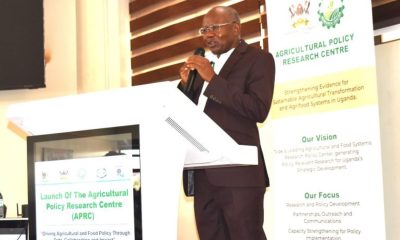

APRC Trains Graduate Students & Stakeholders in the Use of the African Agriculture Adaptation Atlas
-
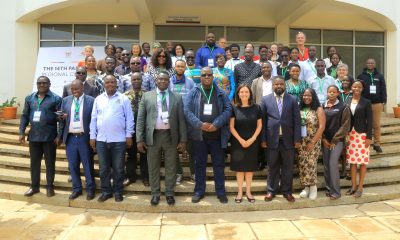

Harmonizing Africa’s Future through Musical Arts Education
-
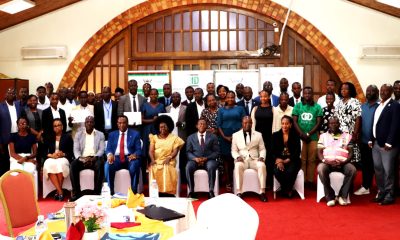

Swedish Ambassador Calls on Uganda to Lead Africa’s E-Mobility Revolution
-
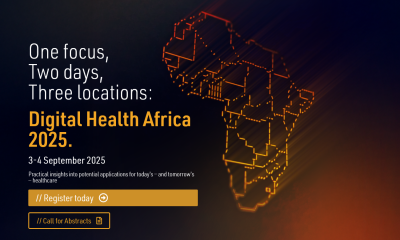

Call for Abstracts: Digital Health Africa 2025
-
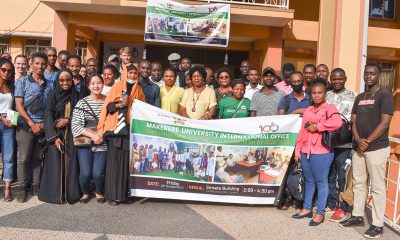

Undergraduate Admission Lists for International Applicants 2025/2026
-
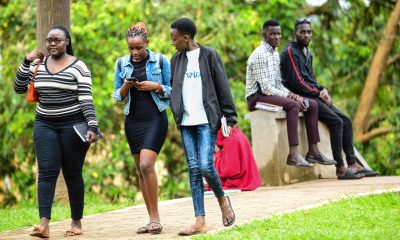

Admission Lists -Disability and District Quota Schemes 2025/26
Agriculture & Environment
APRC Trains Graduate Students & Stakeholders in the Use of the African Agriculture Adaptation Atlas
Published
13 hours agoon
July 3, 2025
The Agricultural Policy Research Centre (APRC), housed within the College of Agricultural and Environmental Sciences (CAES) at Makerere University, continues to play a pivotal role in shaping Uganda’s agricultural future through evidence-based policymaking. With a mission to ensure that agricultural policies are grounded in empirical research and data, APRC is actively investing in capacity-building initiatives that empower researchers, policymakers, and development actors.
In a significant stride toward building climate resilience in African agriculture, APRC recently organized a two-day intensive training workshop focused on the African Agriculture Adaptation Atlas (AAAA) – a state-of-the-art, web-based decision-support platform that facilitates the integration of climate data into agricultural planning and policy.

The workshop, held on Wednesday 25th and Thursday 26th June 2025 at the School of Agricultural Sciences, Makerere University, targeted two key groups: graduate students on the first day, and university faculty, government officials, and development practitioners on the second. This structure ensured tailored learning experiences for both emerging and seasoned professionals, helping to bridge the gap between academic research and real-world policy implementation.
The African Agriculture Adaptation Atlas (AAAA) is designed to provide dynamic, data-rich visualizations that support informed decision-making in agriculture and food systems across the continent. Through interactive maps and analytical tools, users can explore projected climate impacts, evaluate risks, and identify localized, climate-smart adaptation strategies.

Throughout the sessions, participants received hands-on training in a broad range of AAAA functionalities, including:
- Leveraging the Atlas for research and policy communication: Enhancing the ability of scientists and policy actors to translate complex climate data into actionable insights;
- Assessing projected climate impacts and associated agricultural risks: Essential for forward-looking planning and risk mitigation;
- Identifying climate-smart investment options, with a particular focus on the livestock sector, which is especially vulnerable to climate shocks;
- Analysing gendered vulnerabilities: Examining how climate change disproportionately affects women in agricultural communities;
- Understanding the implications of heat stress on agricultural productivity: Supporting targeted interventions to protect producers and their livelihoods;
- Estimating the economic returns of adaptation strategies: Aiding in prioritizing investments and allocating limited resources effectively.

Prof. Bernard Bashaasha, the APRC Coordinator, emphasized the importance of the training in advancing Africa’s adaptation agenda. “As climate change continues to threaten food security and disrupt livelihoods across the continent, tools like the AAAA, and the skills to use them effectively are essential. They empower decision-makers to craft policies that are adaptive, inclusive, and rooted in science,” he noted.
The workshop was coordinated by Dr. Florence Rwiza, Lecturer in the Department of Agribusiness and Natural Resource Economics at CAES.
More photos from the Training






Agriculture & Environment
NbS4Tea Project Team Makes Great Progress, Deploys Drones for Data Collection
Published
1 week agoon
June 24, 2025
****Funded by the Danish Fellowship Centre under Denmark’s Ministry of Foreign Affairs, NbS4Tea is a five-year initiative aimed at enhancing climate resilience and tea productivity in Uganda.
Launch of drones for data collection
The Nature-based Solutions for Tea (NbS4Tea) project has registered a significant milestone with the successful deployment of drones to improve environmental and agricultural data collection.
On 19th June 2025, the project team officially launched the drones at the Rwebitaba Tea Research Centre in Kyenjojo District, the project’s main research hub. The launch event included hands-on training sessions by Mr. Timothy Mutungi, a certified Remote Sensing Drone Pilot. Mr. Mutungi provided detailed instruction on drone operation, safety procedures, and data acquisition techniques specifically tailored to the project’s goals. The training was attended the core NbS4Tea researchers as well as students supported by the project.

By utilizing drone technology, the team will be able to capture high-resolution imagery and gather critical environmental data across vast tea-growing areas. This will enable more precise assessments of biodiversity, soil health, water use, and overall ecosystem services. The valuable insights generated will guide the development of sustainable, nature-based agricultural practices with the potential for widespread adoption throughout the tea industry.
About the NbS4Tea Project
NbS4Tea is a five-year initiative aimed at enhancing climate resilience and tea productivity in Uganda. Funded by the Danish Fellowship Centre under Denmark’s Ministry of Foreign Affairs and led by Dr Emmanuel Arthur from Aarhus University, the project is being implemented through a consortium of Ugandan and Danish institutions namely: Makerere University, the National Agricultural Research Organization (NARO), Uganda, Uganda Tea Association, Aarhus University, Denmark, and Kick-start International.

The primary objective of the project is to sustainably close the tea yield gap in Uganda by developing research-driven, nature-based solutions that enhance the climate resilience of tea production systems. This involves identifying climate-resilient tea varieties, integrating tea prunings and banana by-products, utilizing nitrogen-fixing agroforestry trees, and improving irrigation management. The approach emphasizes socio-economic feasibility, capacity building in research, and a market-oriented, multi-stakeholder collaboration to ensure both environmental and economic sustainability.
At Makerere University, the project is coordinated by Dr Alex Nimusiima from the Department of Geography, Geo-Informatics and Climatic Sciences at CAES. Other Project members are; Dr Grace Nakabonge from the Department of Forestry, Biodiversity and Tourism; Dr Prossy Nakawuka from the Department of Agricultural and Bio-systems Engineering; Dr Twaha Ali Basamba from the Department of Agricultural Production; and Dr Alice Turinawe from the Department of Agribusiness and Natural Resource Economics.

Specific objectives
- Identify and quantify climate change impacts on tea yield and quality based on historical and newly obtained data and novel data mining methods.
- Screen, select and recommend tea varieties adapted to abiotic (drought and heat) and biotic stresses (diseases and pests).
- Develop new knowledge on the potential of local waste biomass (tea prunings, banana pseudostems and peels) as soil amendments- mulch, compost, biochar, to recycle nutrients, improve soil fertility, increase carbon sequestration and alleviate drought.
- Reveal NbS through agroforestry combined with organic mulch, irrigation and resilient tea varieties that increase biodiversity and tea yield.
- Innovate new methods to enhance tea production under climate change through rainwater harvest and climate-smart irrigation infrastructure.
- Empower vulnerable groups (women, youth, and people with disabilities) in tea production and processing to ensure multi-actor involvement and socio-economic benefit outreach of the proposed NbS in tea cultivation and production.
- Identify export market strategies for NbS tea products, aligned with consumer preferences.

Progress thus far
Launched in January 2024, the project, organized in five work packages, has registered significant progress. Each of the work packages listed below supports one PhD student and one Masters’ student. The PhD students are: i) Mr. Adiga Hassan from the Department of Geography, Geo-Informatics and Climatic Sciences at CAES conducting research under work package 1; ii) Ms. Sarah Namayengo from the Department of Forestry, Biodiversity and Tourism conducting research under work package 2; Ms. Vivian Namutebi from the Department of Soil Science and Land Use Management undertaking research on work package 3; Mr. Keneth Chelimo from the Department of Agricultural and Biosystems Engineering conducting his research under work package 4; and Ms. Moreen Asasira from the Department of Agribusiness and Natural Resource Economics focusing on work package 5. The Masters students are: i) Ms. Evelyn Katasi from the Department of Environmental Management at CAES (work package 1), Mr. Vereriano Turyahebwa from Department of Forestry, Biodiversity and Tourism (work package 2); Mr. Ben Okurut from the Department of Soil Science and Land Use Management (work package 3); Mr. Augustine Okot from the Department of Agricultural and Biosystems Engineering (work package 4); and Mr. Augustine Kigozi from the Department of Agribusiness and Natural Resource Economics (work package 5)

Work packages and achievements registered
Work Package 1: Climate change impacts on tea yield and quality – Headed by Dr. Alex Nimusiima
This work package centres on the analysis of historical and projected climate conditions in the study area. It examines how current climate patterns influence tea production, as well as the potential effects of future climate change on tea yield and quality.
Progress
i) A household survey assessing the socio-economic status of tea farmers and the effects of climate variability on their livelihoods has been completed.
ii) The collected data has been cleaned, and the Masters student supported under this work package is currently writing her thesis based on the survey findings.
iii) A historical climate analysis of the study area has been conducted by the PhD student, who is now preparing a manuscript.

Work Package 2: Screening & selecting tea genotypes for resilience to abiotic and biotic stresses – Headed by Assoc. Prof. Grace Nakabonge
This work package focuses on evaluating existing tea genotypes for their resistance to pests and diseases, using chlorophyll fluorescence imaging as a diagnostic tool.
Progress
i) A screen house has been constructed to serve as the experimental site.
ii) Germplasm from two tea varieties is currently being cultivated in the screen house in preparation for the upcoming experiments.
iii) A drone has been acquired to assist in data collection for this work package.

Work Package 3: Evaluation of NbS for climate resilience, higher yield and biodiversity- Headed by Assoc. Prof. Twaha Ali Basamba
This focuses on the characterization of mulch and biochar derived from tea prunings to improve soil health. It also aims to quantify the added value of Nature-based Solutions (NbS) in enhancing tea productivity, promoting climate resilience, and supporting biodiversity.
Progress
- So far, Biochar has been produced from tea prunings and characterized.
- The Masters student supported under this work package is writing his thesis on the results of biochar characterization.

Work Package 4: Innovating smart and scalable irrigation technology for improved tea production- Headed by Dr. Prossie Nakawuka
This work package aims to develop and evaluate smart, scalable irrigation solutions to boost tea production. It focuses on assessing how irrigation impacts tea yield and quality, measuring water use efficiency, and analyzing the economic returns of irrigation practices. Additionally, it explores deficit irrigation and climate-resilient strategies to ensure sustainable tea farming in changing environmental conditions.
Progress
- The irrigation infrastructure is now in place and fully operational at Rwebitaba Tea Research Centre in Kyenjojo District.
- The experimental plots for irrigation experiments are already in place with water pipes.

Work package 5: Socio-economic assessment of tea-agroforestry and selected tea varieties – Headed by Dr. Alice Turinawe
This work package emphasizes co-creation within multi-stakeholder innovation networks to evaluate the economic feasibility and market access of tea agroforestry systems. It also focuses on promoting gender balance and understanding consumer valuation of Nature-based Solutions (NbS) tea from Uganda.
Progress
To date, two co-creation workshops have been successfully conducted and the Masters student under this work package is currently analyzing the workshop results as part of their research.

Expected outputs and outcomes
- Increased tea production, productivity, and biodiversity through the adoption of NbS.
- Increased research and technical capacity of Makerere and R-ZARDI.
- Holistic stakeholder insight on economic feasibility, consumer acceptance and market access strategies, especially for vulnerable groups in the tea value chain.
- Increased job prospects for youth and women in tea production sub-sectors.
- Improved social status and increased incomes of tea farmers, traders, and exporters.
- Improved economic and environmental quality by recycling biomass waste into value-added products dedicated to soil enhancement.
- 4+ high-yielding tea genotypes adapted to drought and heat, diseases and pests.
- 15+ scientific articles, conference presentations.
- Five PhDs and Five MSc degrees.
- Market access assessment and empowerment.

Details on the project: https://news.mak.ac.ug/2024/01/new-caes-project-to-improve-tea-production-in-uganda/
More photos from the event



Agriculture & Environment
New Mak-CAES Project to Spur Green Growth in East Africa
Published
3 weeks agoon
June 13, 2025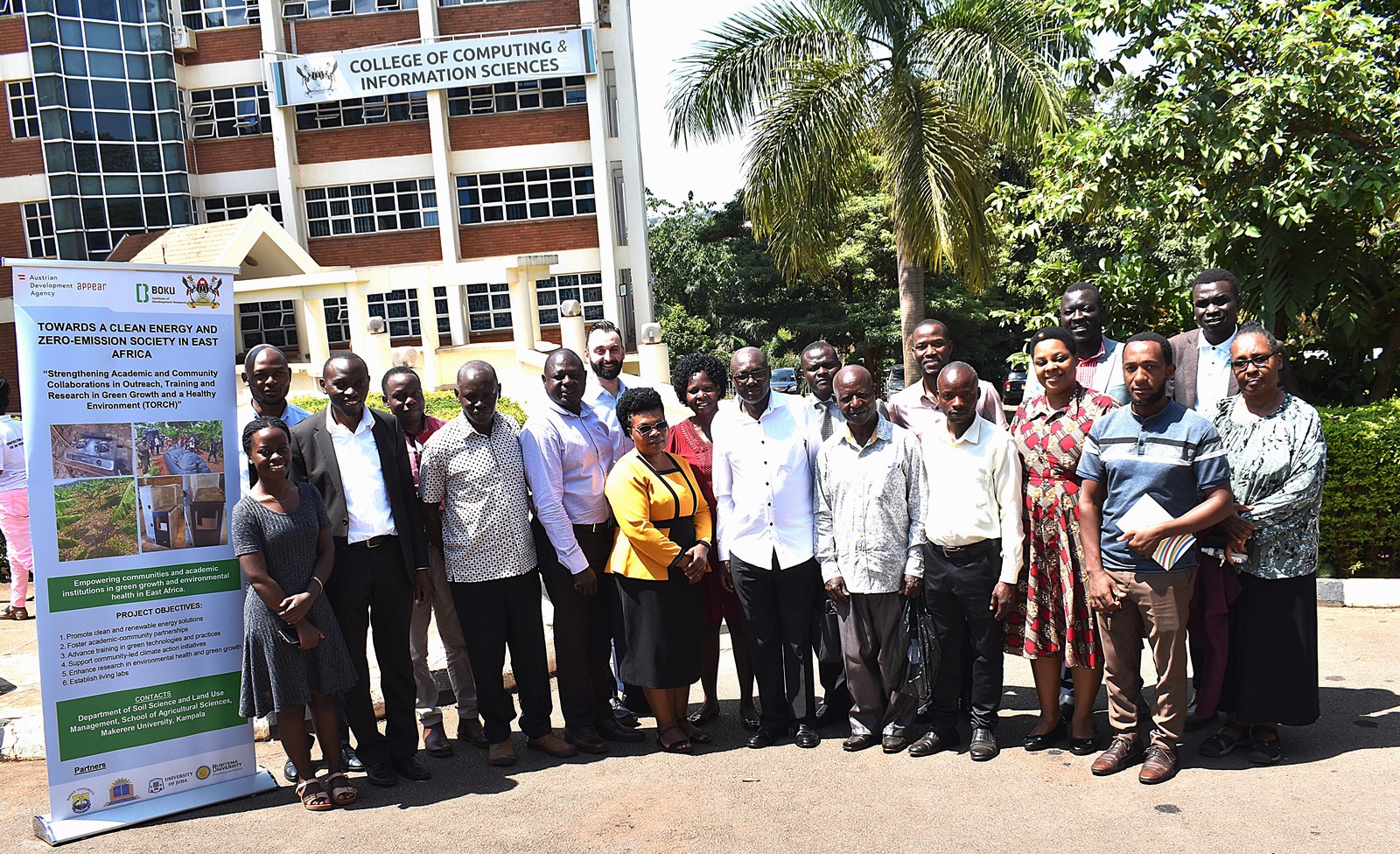
Makerere University, through its Department of Soil Science and Land Use Management at the College of Agricultural and Environmental Sciences (CAES), has launched a new project aimed at fostering green growth and promoting sustainable development across East Africa. This initiative aligns with global efforts to combat climate change and create eco-friendly, low-carbon communities through collaborative research, education, and technology.
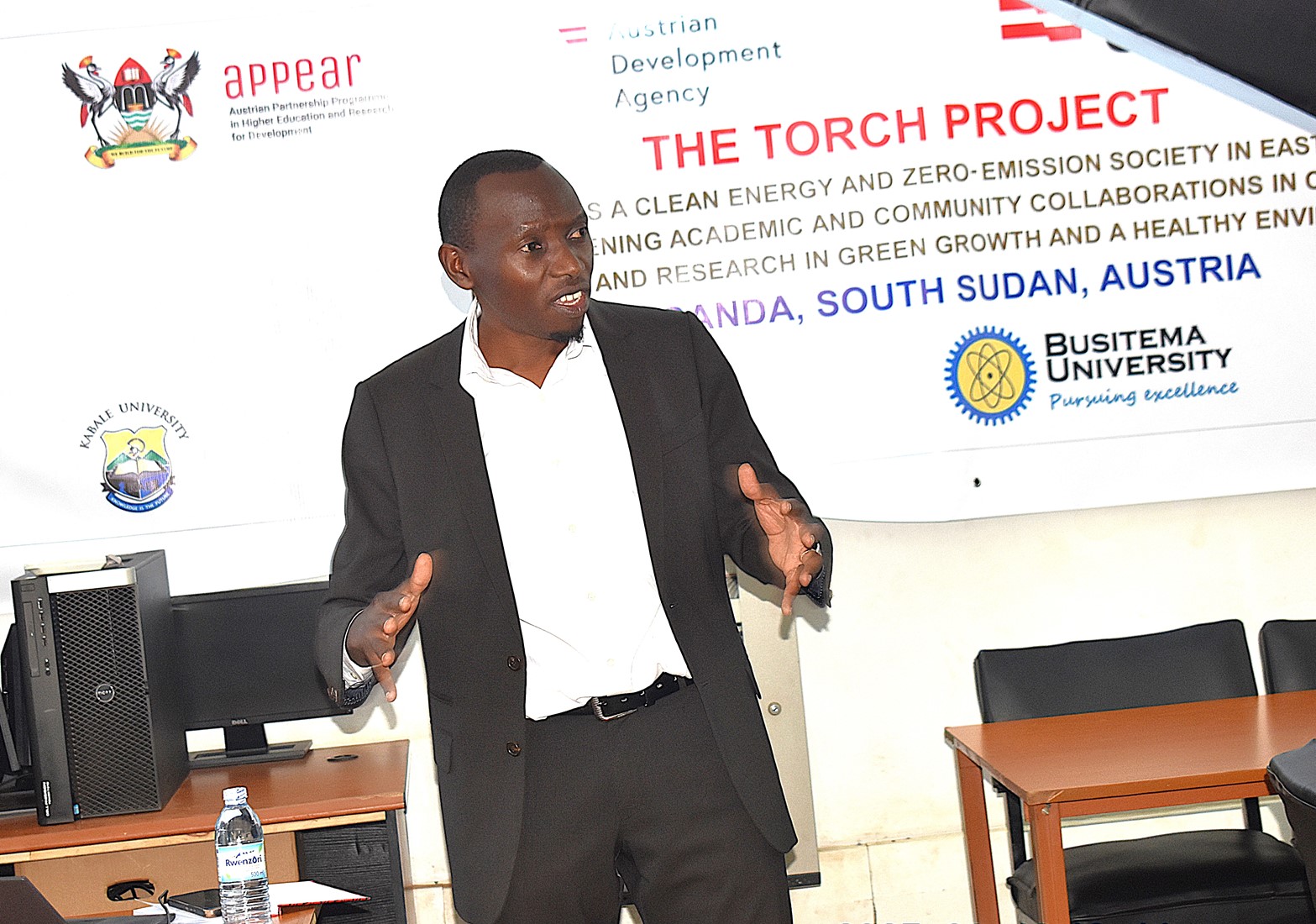
Introducing the TORCH Project: Towards a Clean Energy and Zero-Emission Society
The two-year project, code-named TORCH (Towards a Clean Energy and Zero-emission Society in East Africa), seeks to strengthen cooperation between academia and local communities to promote green growth and environmental sustainability. Funded by the OeAD-GmbH under the Austrian Partnership Programme in Higher Education Research for Development (APPEAR), TORCH focuses on clean energy solutions, carbon emission reduction, and community empowerment through training, research, and co-creation of green technologies.
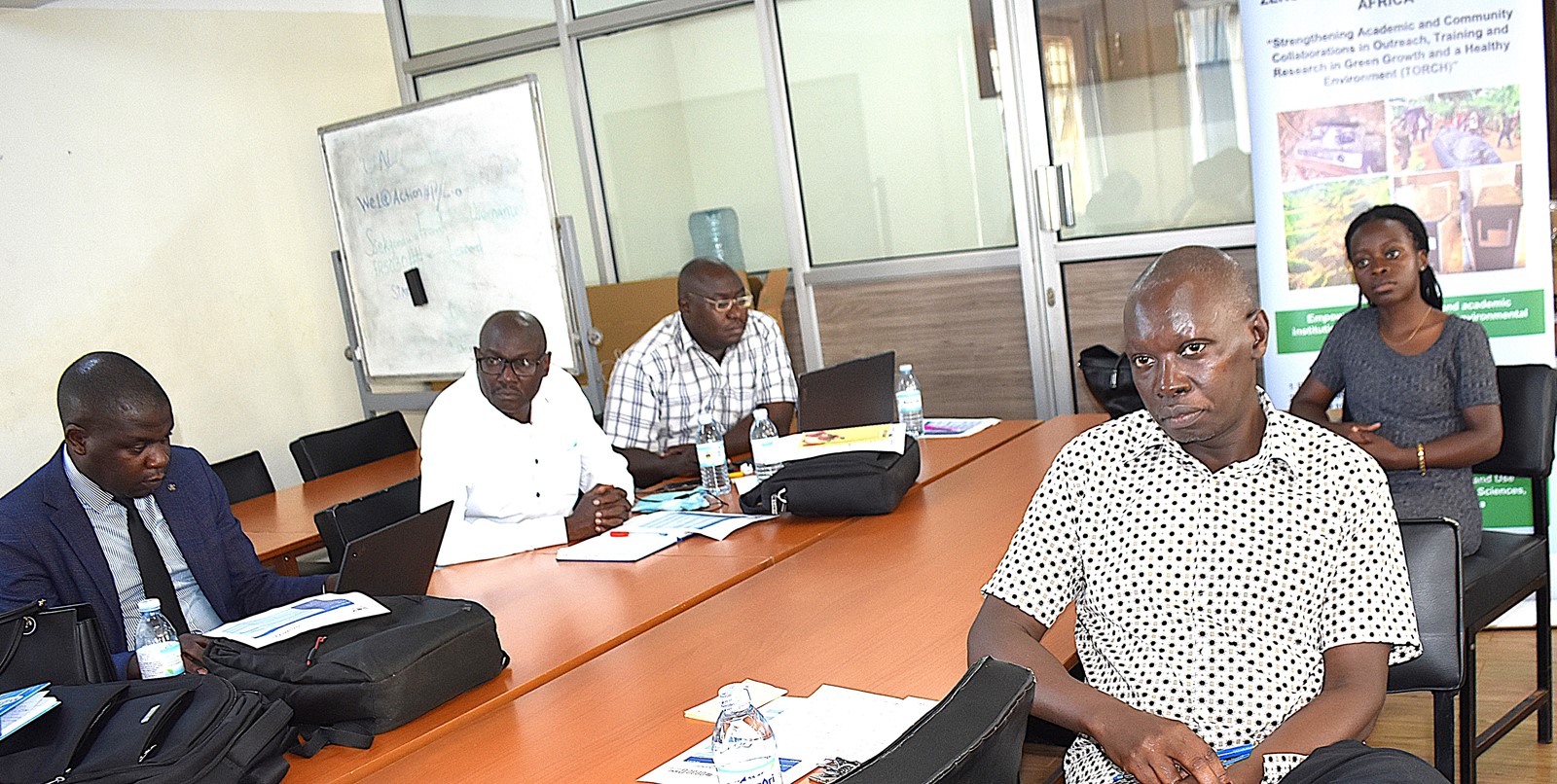
Officially launched by the Principal of CAES, represented by Dr. Paul Mukwaya, Head of the Department of Geography, Geo-Informatics and Climatic Sciences at Makerere University, TORCH builds upon existing East African government policies. The project will implement the innovative concept of living labs, where universities, communities, and stakeholders co-design, co-create, and co-produce affordable, reliable green technologies tailored to local needs.
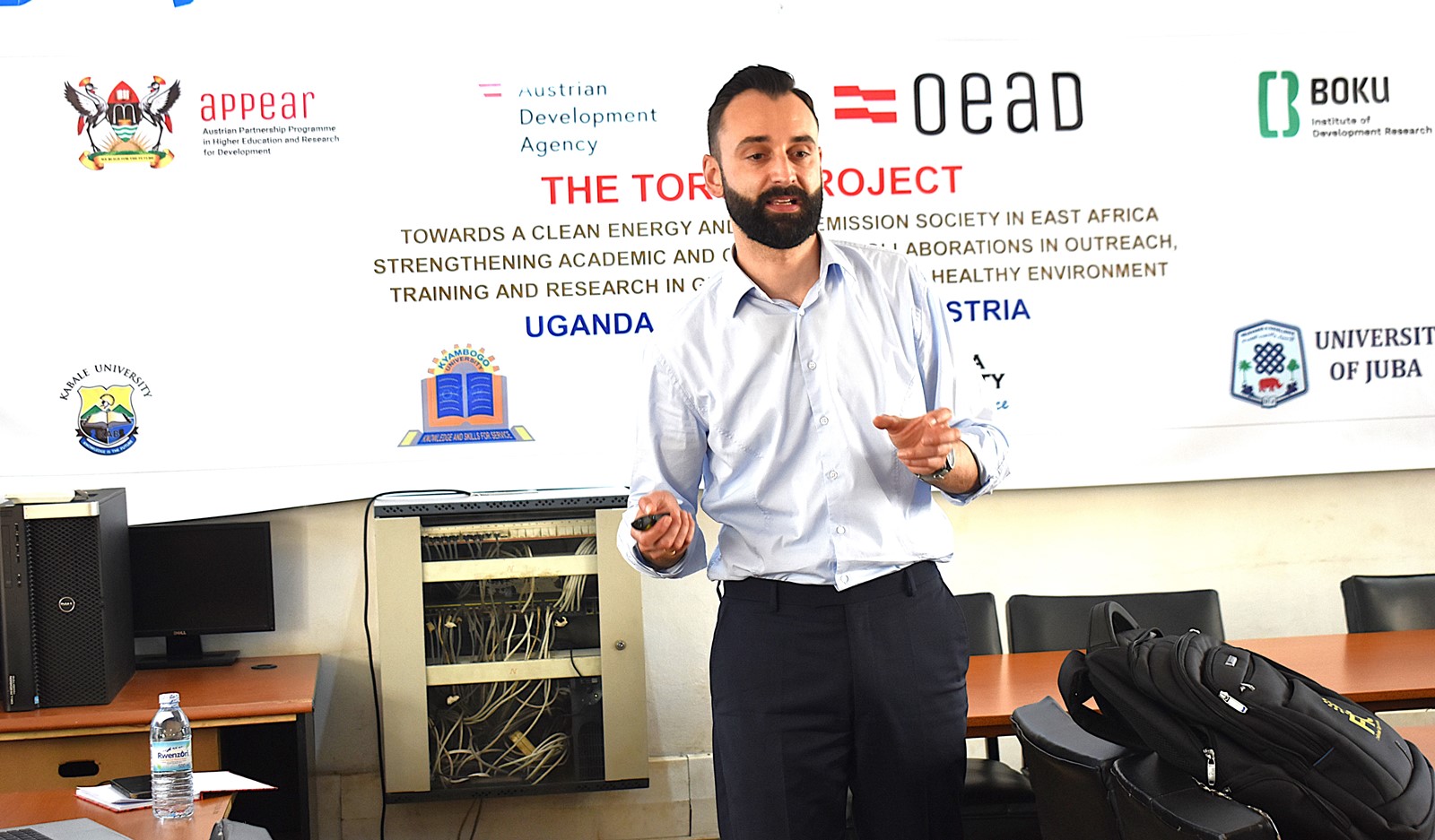
Key Objectives and Activities
TORCH aims to:
- Enhance teaching on green growth by integrating principles into selected academic curricula.
- Establish three living laboratories in Central, South Western, and Eastern Uganda to boost co-creation on energy efficiency and low-carbon emissions.
- Increase human capacity through short courses, field research, and training.
- Empower women in science and technology.
- Promote novel green technologies and support policy transformation.
- Strengthen partnerships among universities in East Africa.
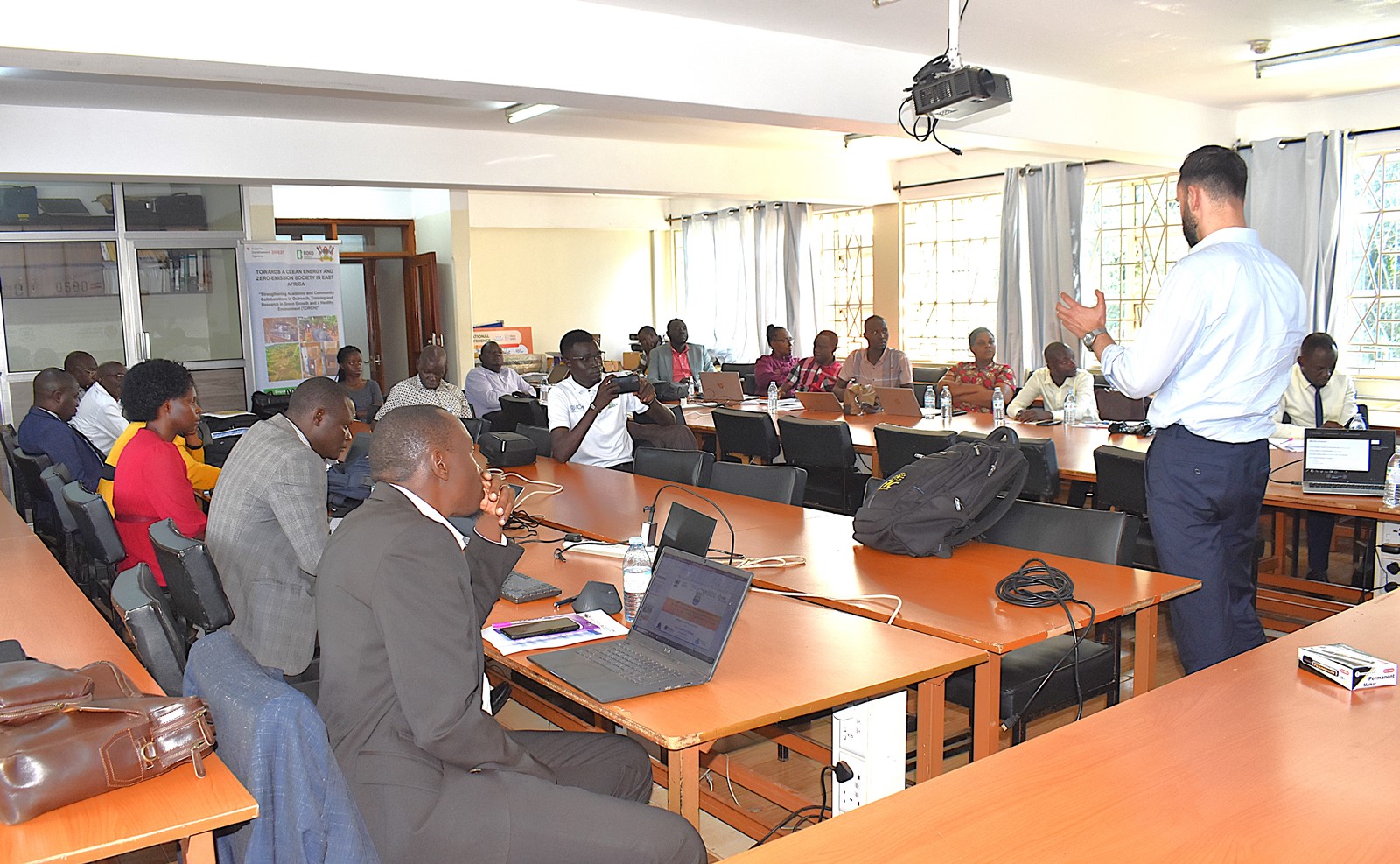
These activities directly contribute to achieving several Sustainable Development Goals (SDGs), including SDGs 4 (Quality Education), 5 (Gender Equality), 6 (Clean Water and Sanitation), 7 (Affordable and Clean Energy), 12 (Responsible Consumption and Production), and 13 (Climate Action), while also reducing health risks and conserving the environment.
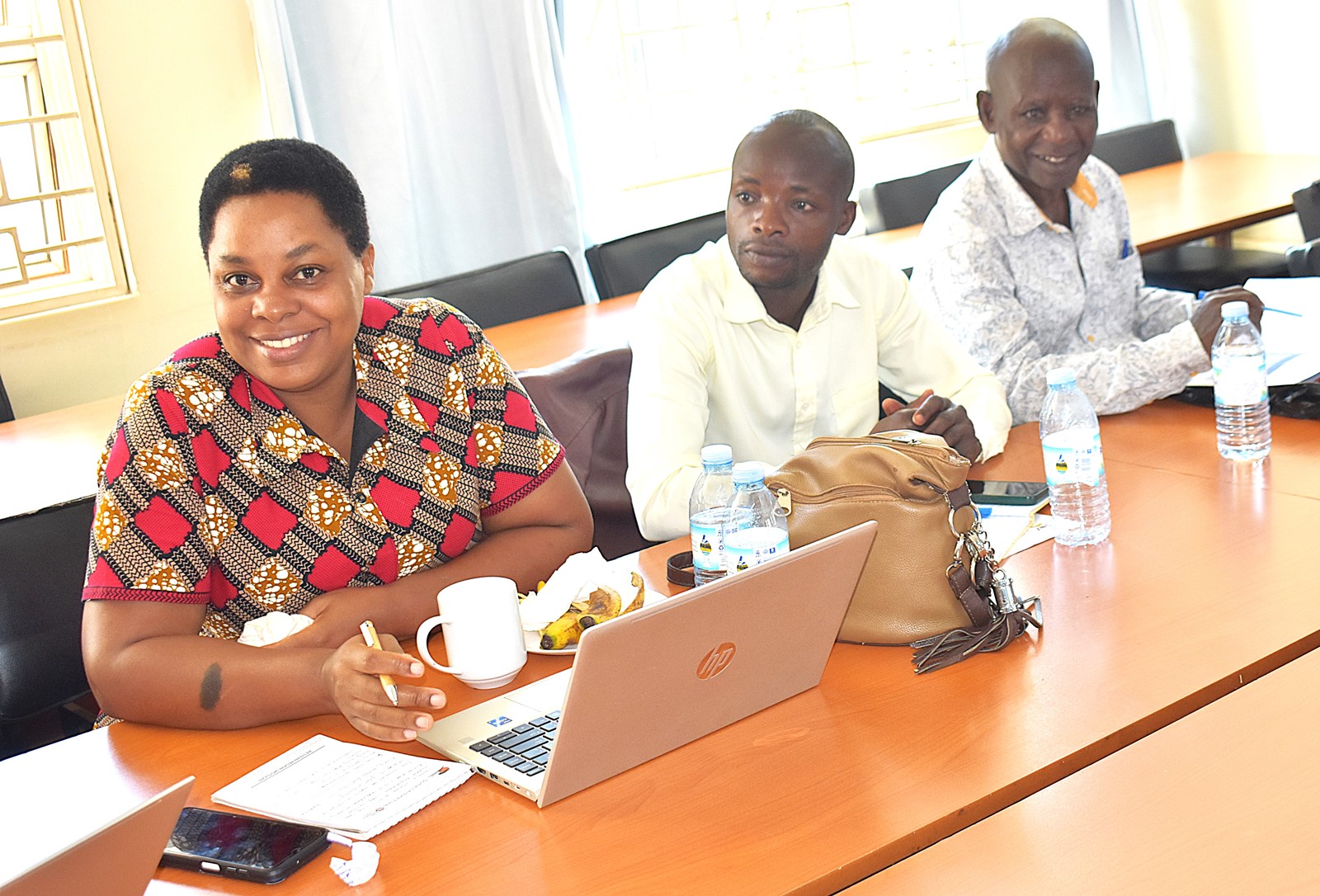
Leadership and Partner Institutions
The overall project coordinator is Dr. Patrick Musinguzi, Lecturer in the Department of Soil Science and Land Use Management at Makerere University. TORCH involves several partner institutions, including: Makerere University (Uganda), University of Natural Resources and Life Sciences, Vienna (Austria), Kabale University (Uganda), Busitema University (Uganda), Kyambogo University (Uganda), and the University of Juba (South Sudan).

Highlights of the Launch Ceremony
During the launch ceremony held in the GIS Lab at Makerere University, and attended by representatives from the partner institutions, Dr. Musinguzi presented an overview of TORCH, outlining key strategies for implementation and expected outcomes. Central to the project’s strategy is the integration of green growth principles into Makerere University’s academic curriculum. This will be formally proposed to the University Management for adoption. Additionally, the project aims to strengthen the university’s research agenda in this critical area. This will involve supporting faculty and student-led research projects and generation of evidence-based insights on green growth to influence policy at both local and national levels. There are also plans to establish three living labs in Central, South Western, and Eastern Uganda to serve as practical hubs for advancing green growth.
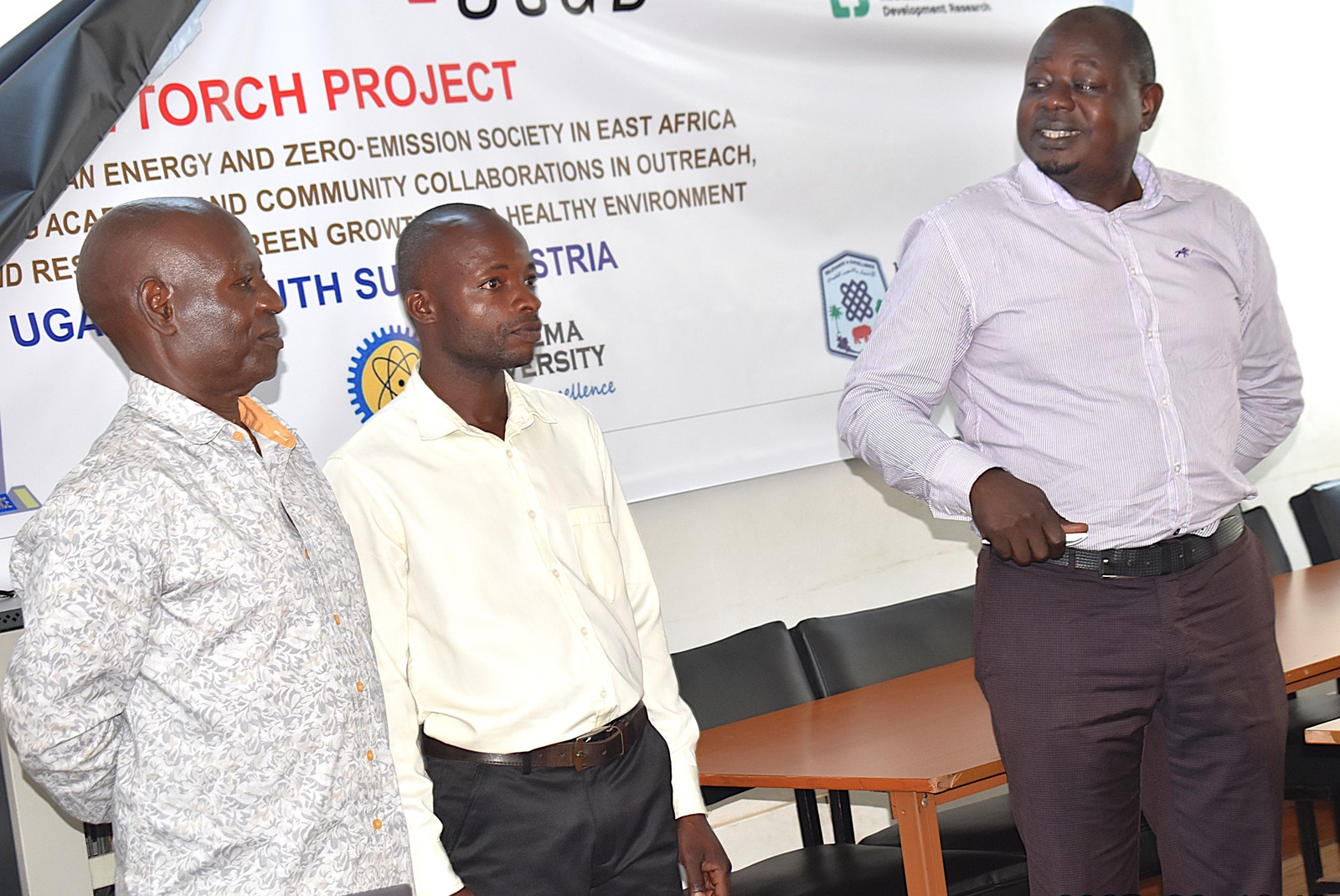
Expert Insights on Community Engagement
In his presentation, Mr. Andreas Bauer from the University of Natural Resources and Life Sciences, Vienna provided valuable insights into the critical role that living labs play in promoting sustainable, green growth. Highlighting practical examples and innovative approaches, Mr. Andreas Bauer emphasized how living labs serve as dynamic platforms for collaboration between researchers, industry stakeholders, and local communities, enabling real-world experimentation and the development of eco-friendly solutions that drive environmental and economic progress.
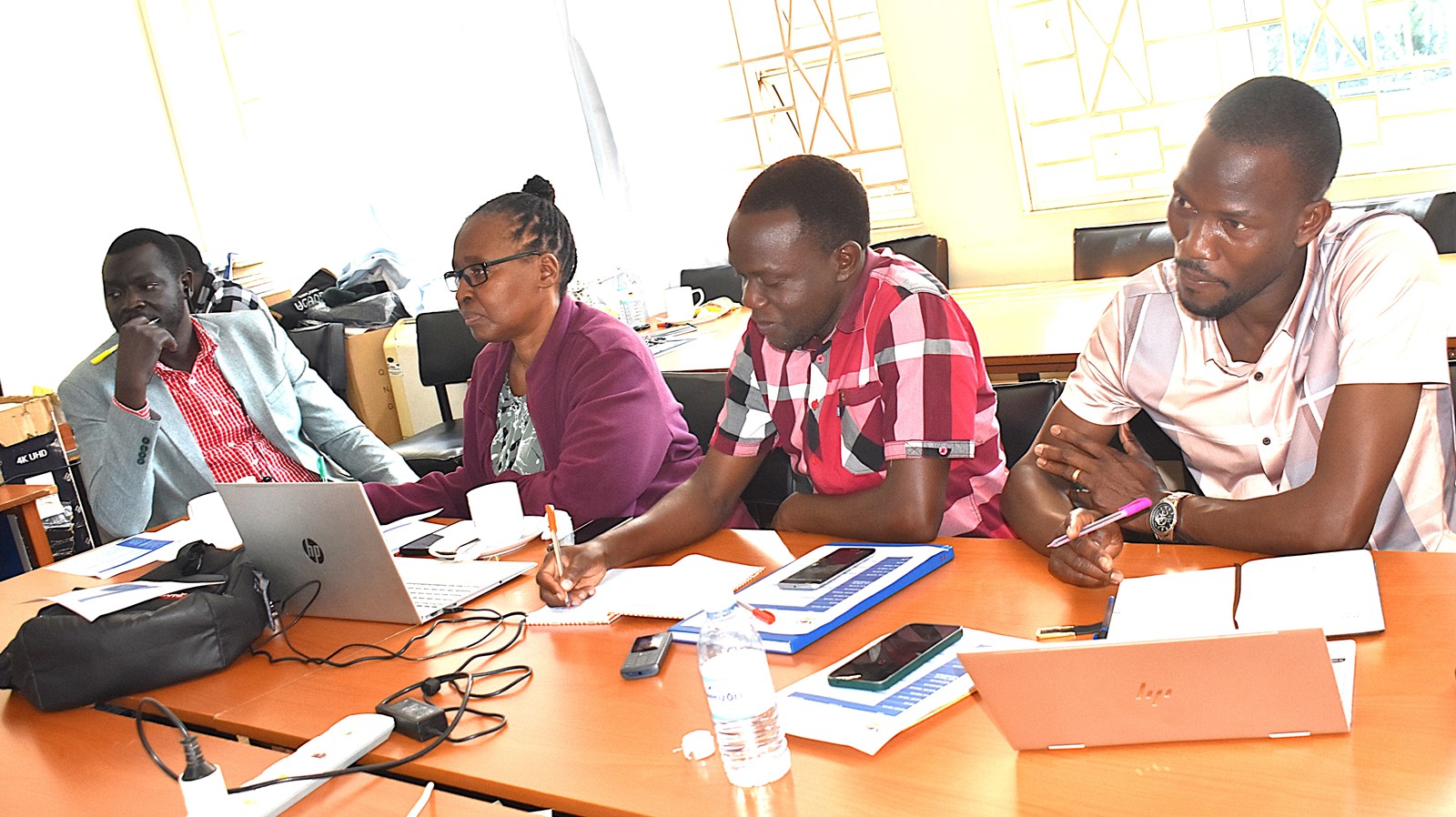
To emphasize the importance of collaboration between local communities and the academia, Mr. Kayanja Susane, a farmer from Kawumu Village in Luweero District, explained that, with guidance and support from the project team, he learned to produce biogas from animal waste -a reliable source of energy that reduces dependence on traditional fuels, subsequently minimizing environmental degradation.
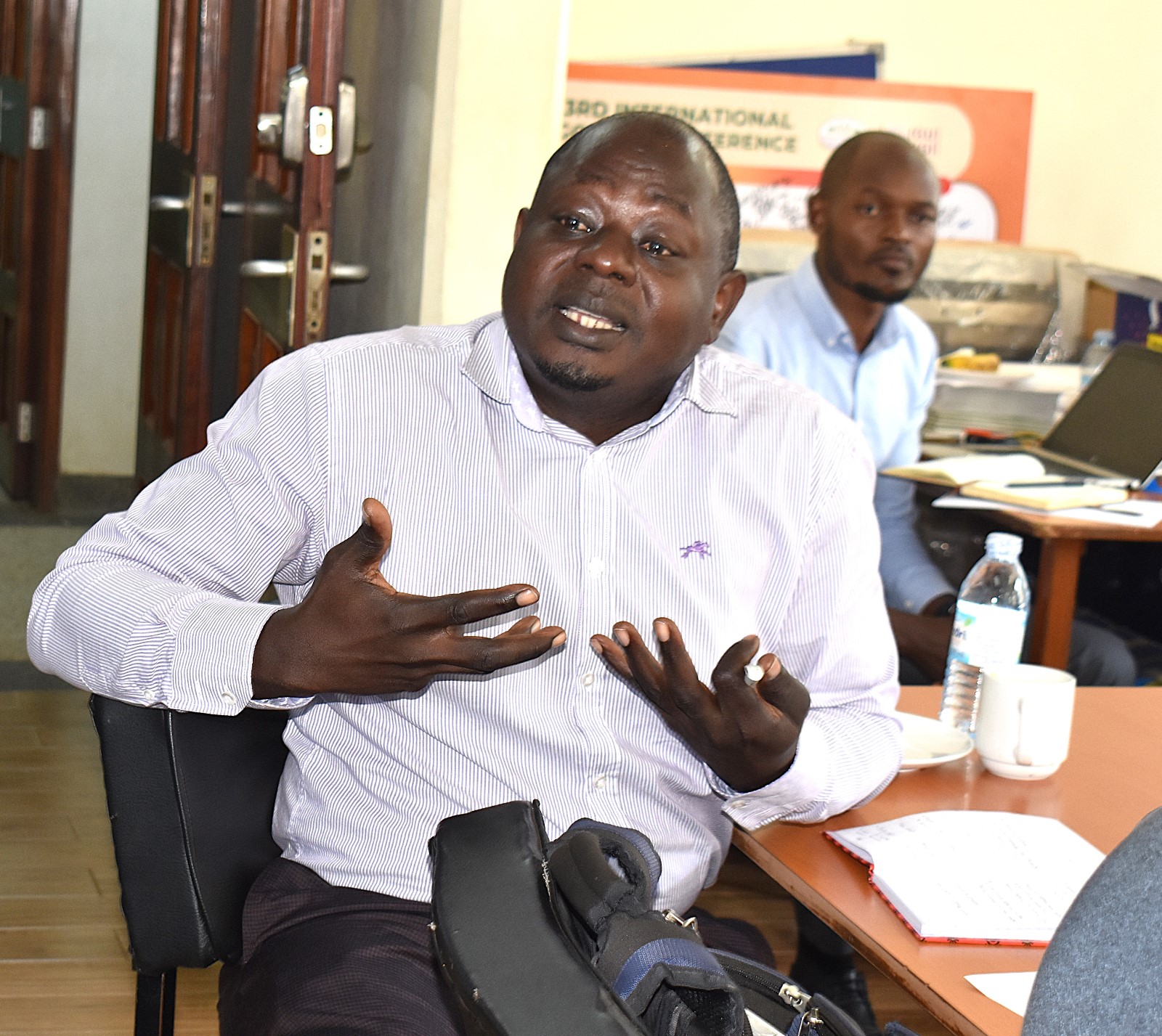
Research Focus
As part of the strategy to guide implementation, the project team brainstormed potential ecological and social indicators of low emissions in homesteads, and proposed several research areas to support green growth. Proposed research areas include:
- Life cycle analysis
- Circular economy practices within homesteads
- Gender integration and the intersection of gender with green growth
- The role of livestock in promoting green growth
- Evaluating the impact of interventions on total emissions
- Barriers to adopting green innovations
- The use of indigenous knowledge in promoting green growth
Addressing the participants, the Principal of the College of Agricultural and Environmental Sciences (CAES), represented by Dr. Paul Mukwaya, Head of the Department of Geography, Geo-Informatics, and Climatic Sciences at Makerere University, commended the project as a timely initiative aligned with the University’s research agenda. He underscored the importance of collaborating with other stakeholders, noting that similar projects have been conducted within and outside Makerere. Dr. Mukwaya called for the adoption of the theory of change framework to ensure the project delivers measurable, sustainable impacts that extend beyond policy briefs and gender mainstreaming, ultimately contributing to lasting green transformation in the region. He expressed appreciation to the project funders for their unwavering support to Makerere University.
Trending
-

 General6 days ago
General6 days agoMature Age Scheme Exam Results for 2025/2026
-

 General1 week ago
General1 week agoFreshers’ Joining Instructions 2025/2026
-

 General2 days ago
General2 days agoUndergraduate Admission List Self Sponsorship Scheme 2025/2026
-

 General2 weeks ago
General2 weeks agoMastercard Foundation Board pays its inaugural visit to Makerere University
-

 General1 week ago
General1 week agoUVCF Makes Case for HEAC Programme
